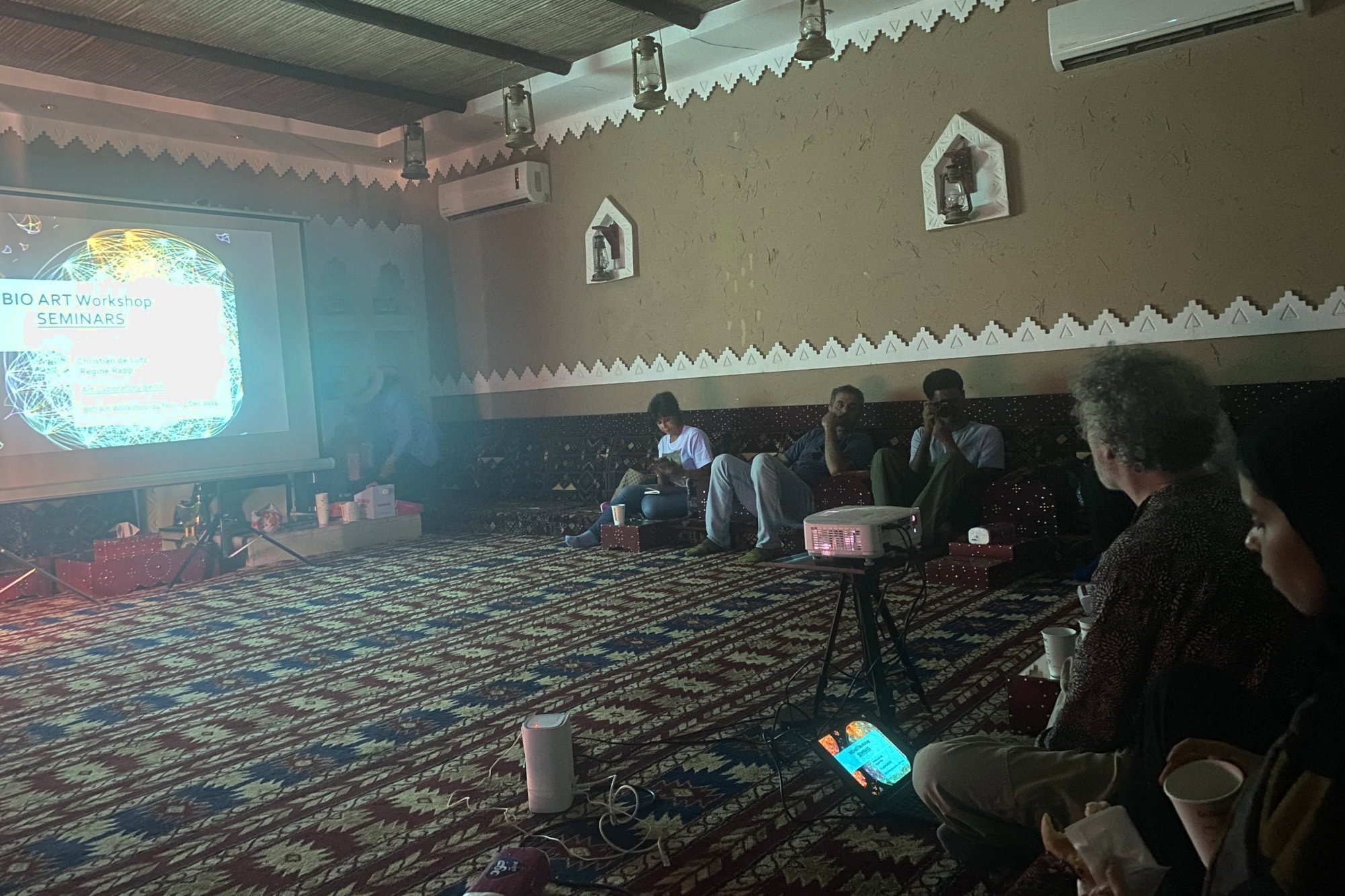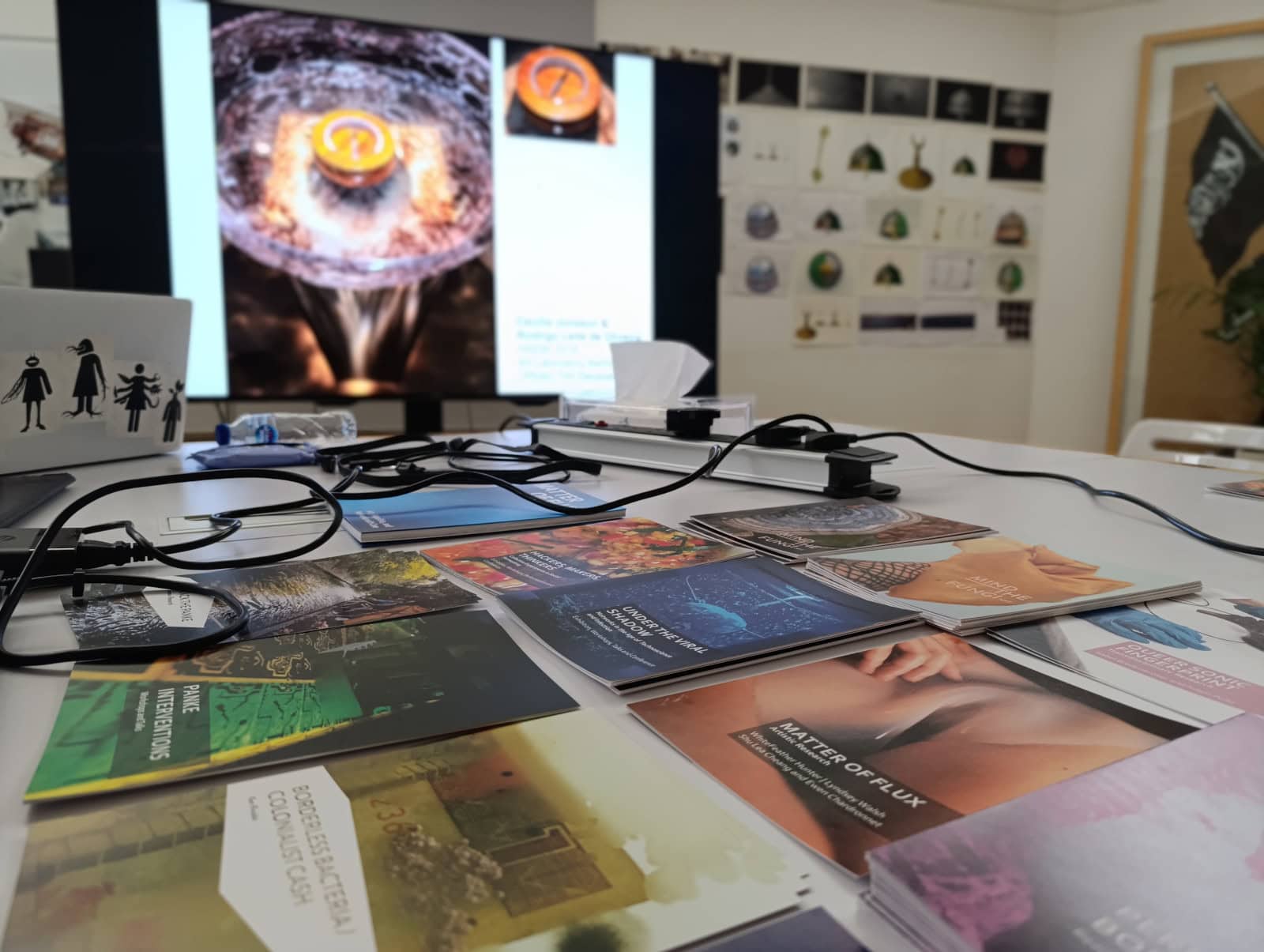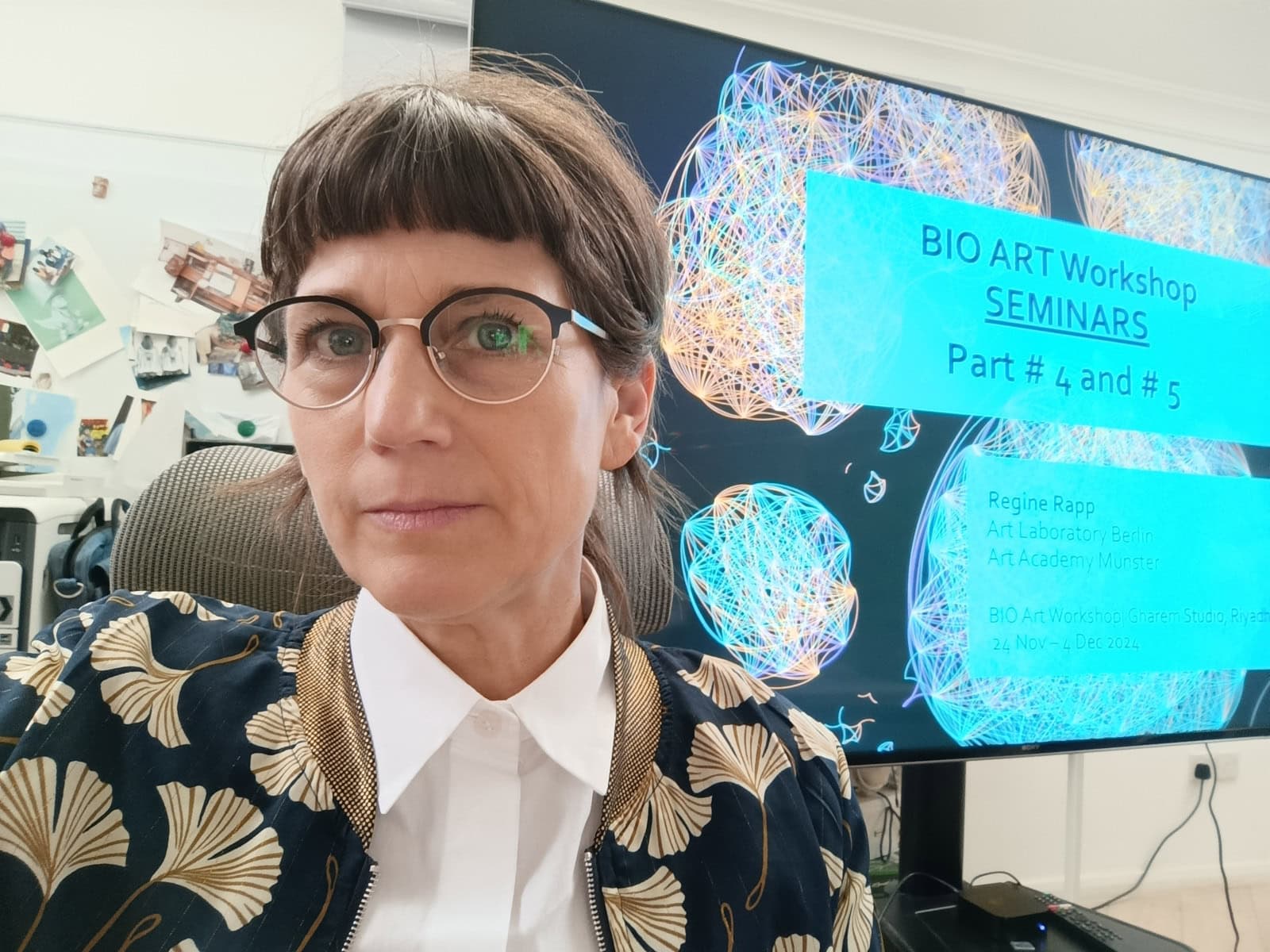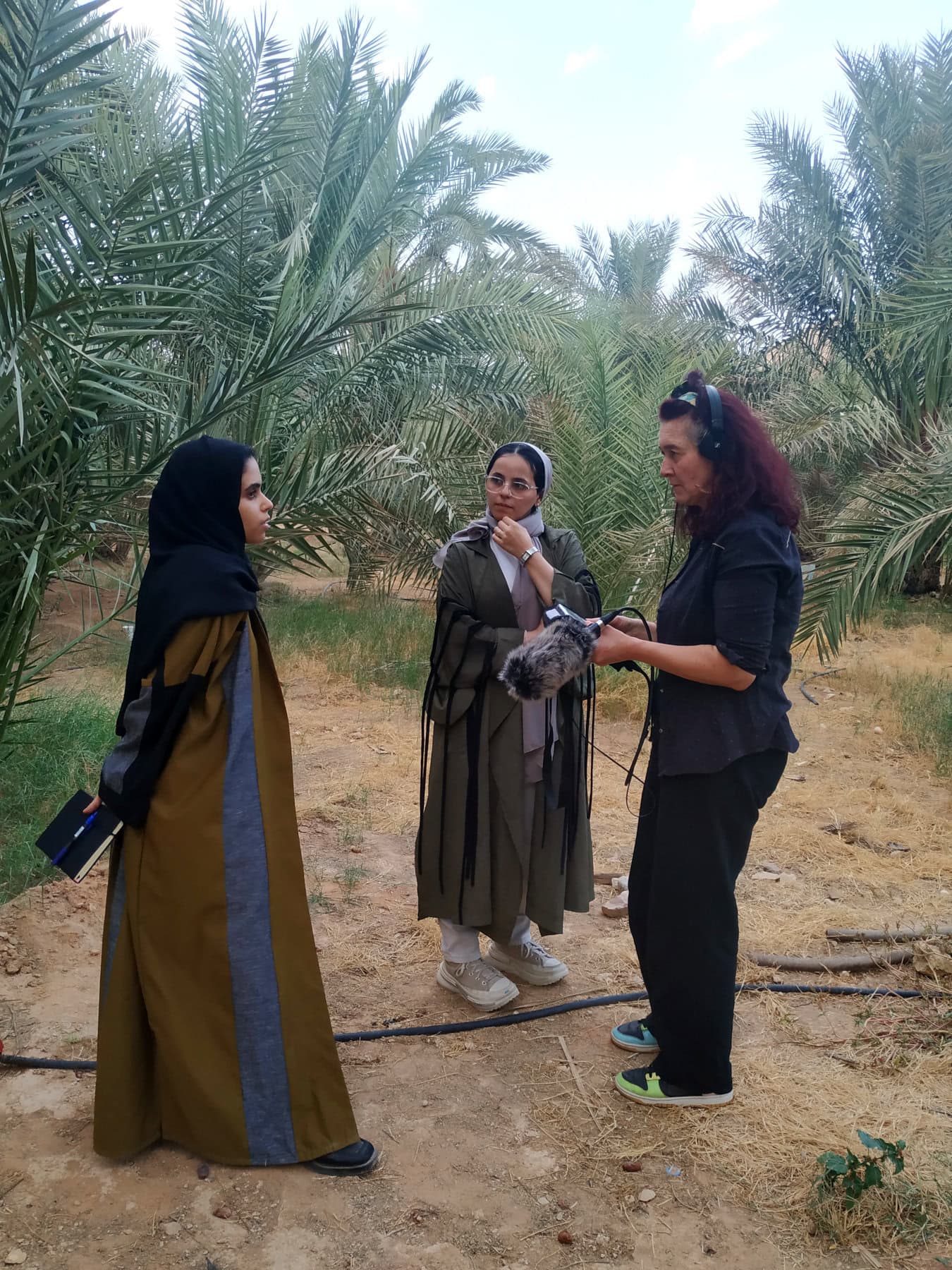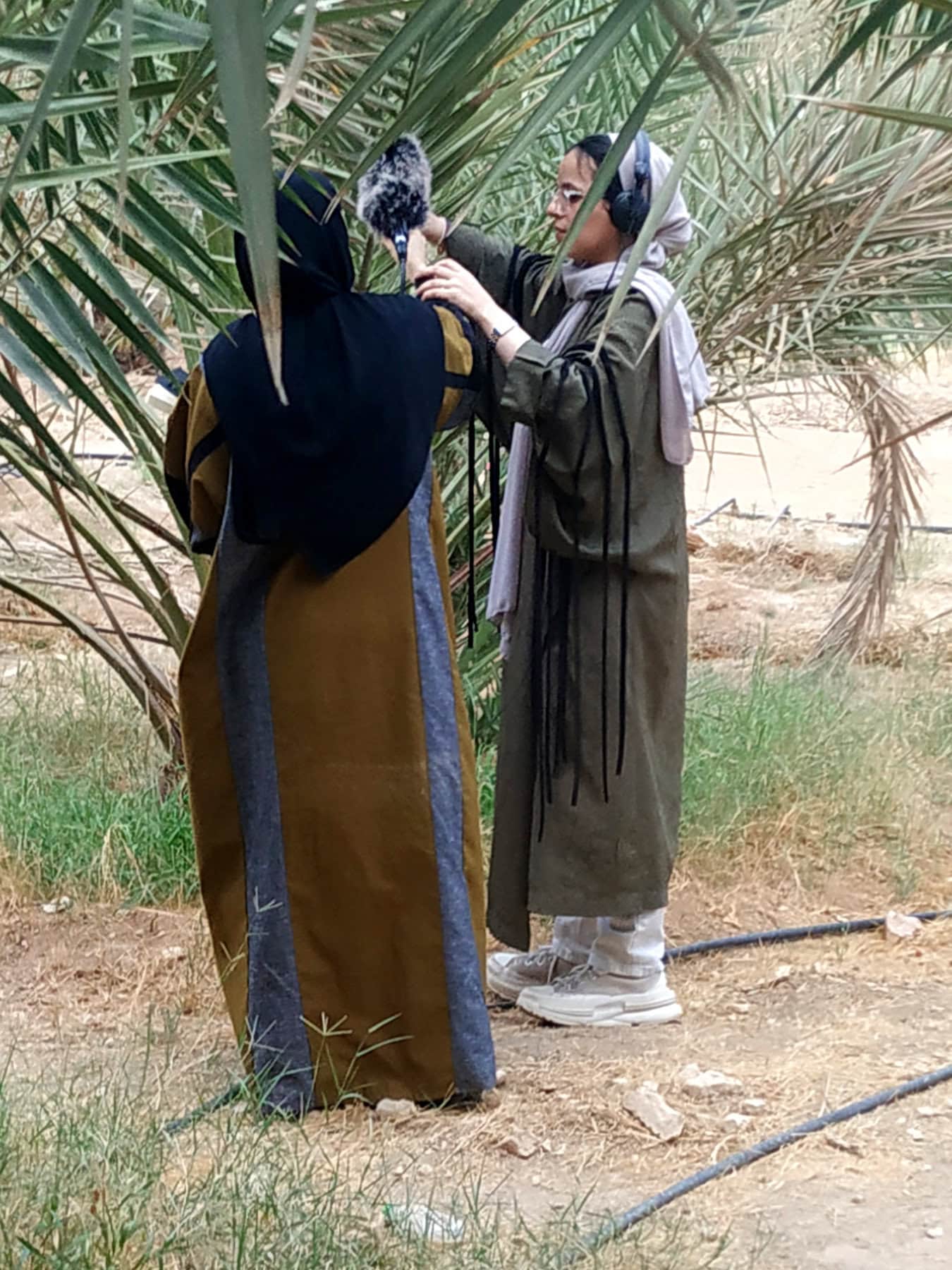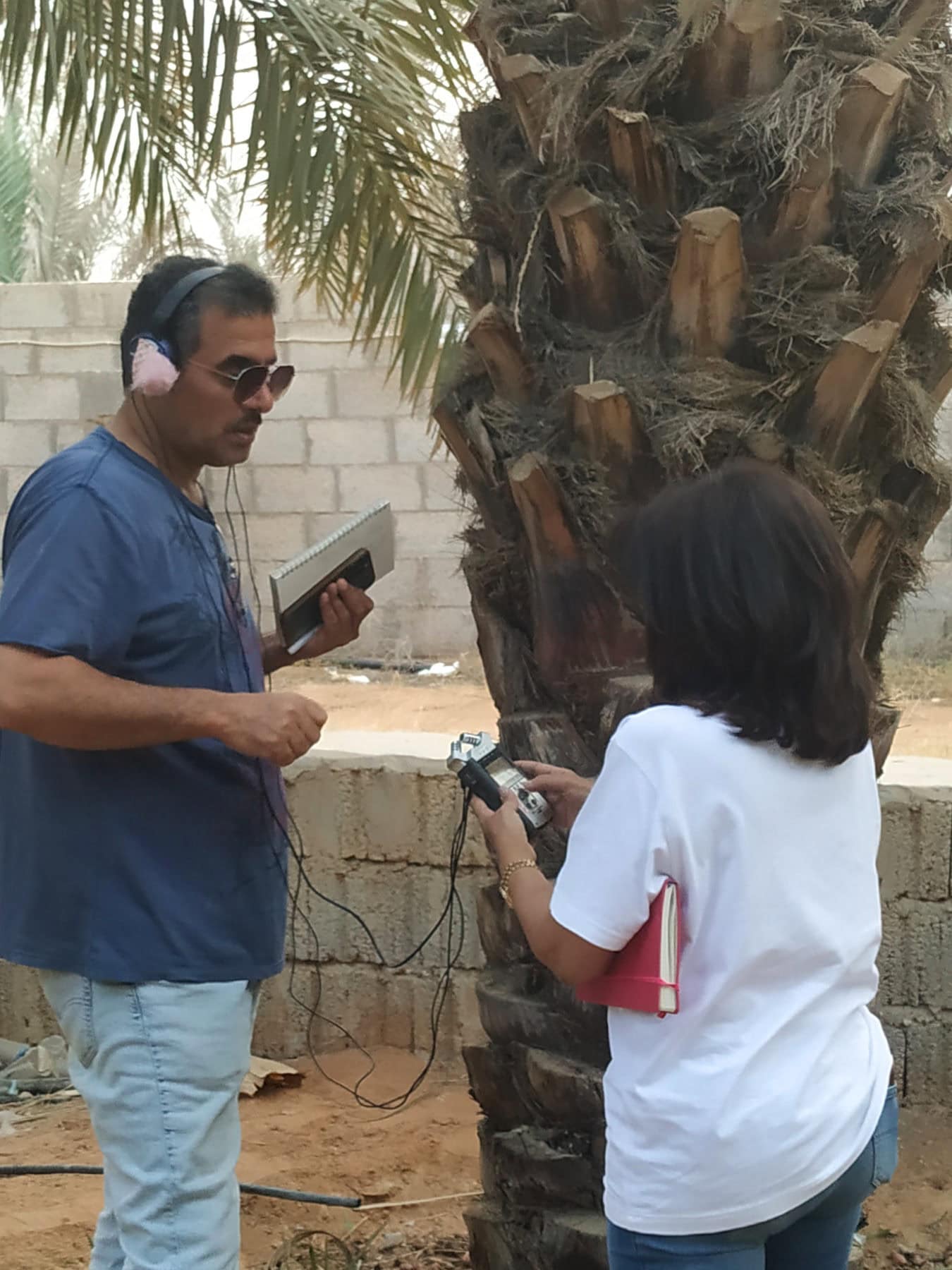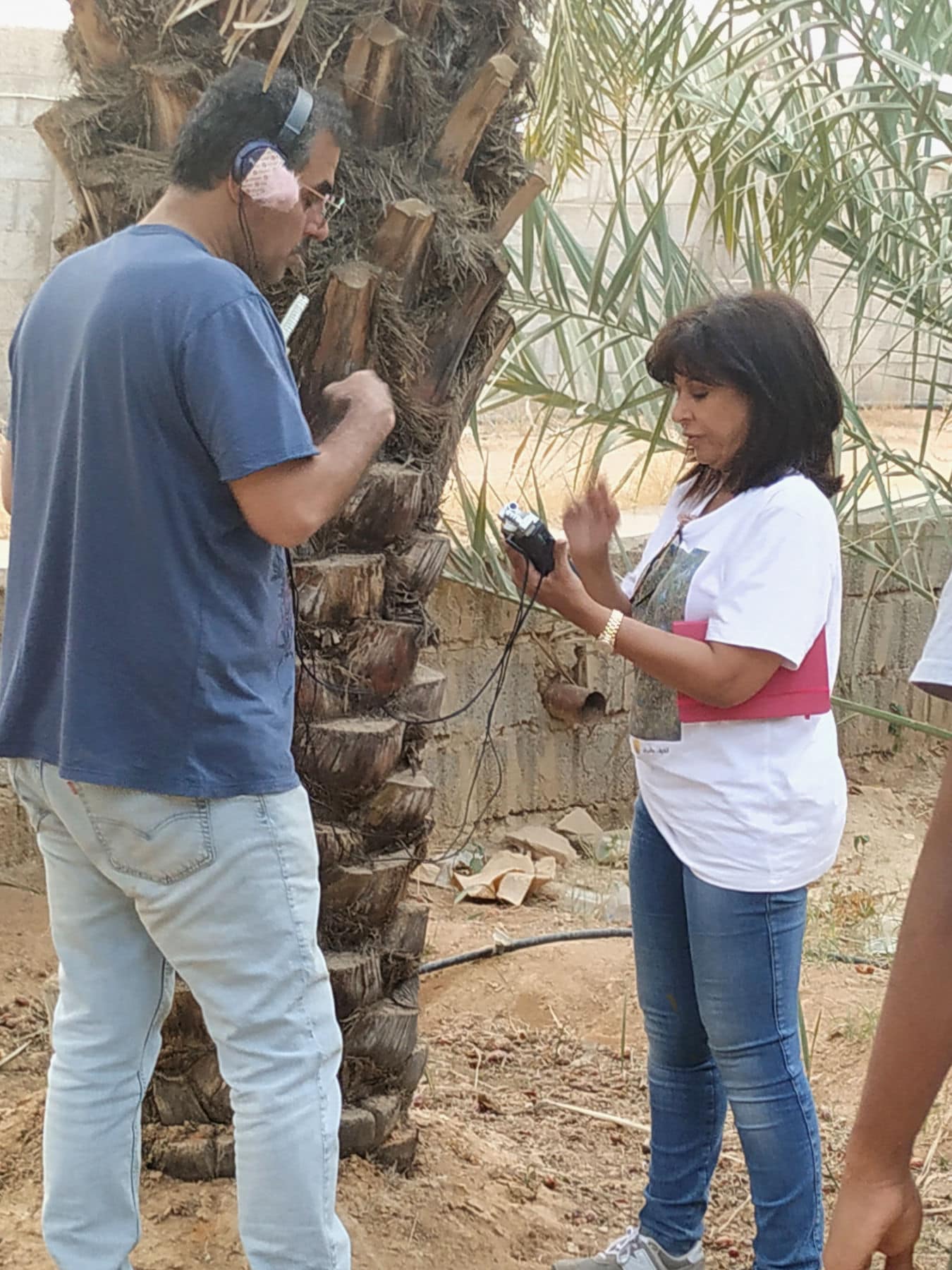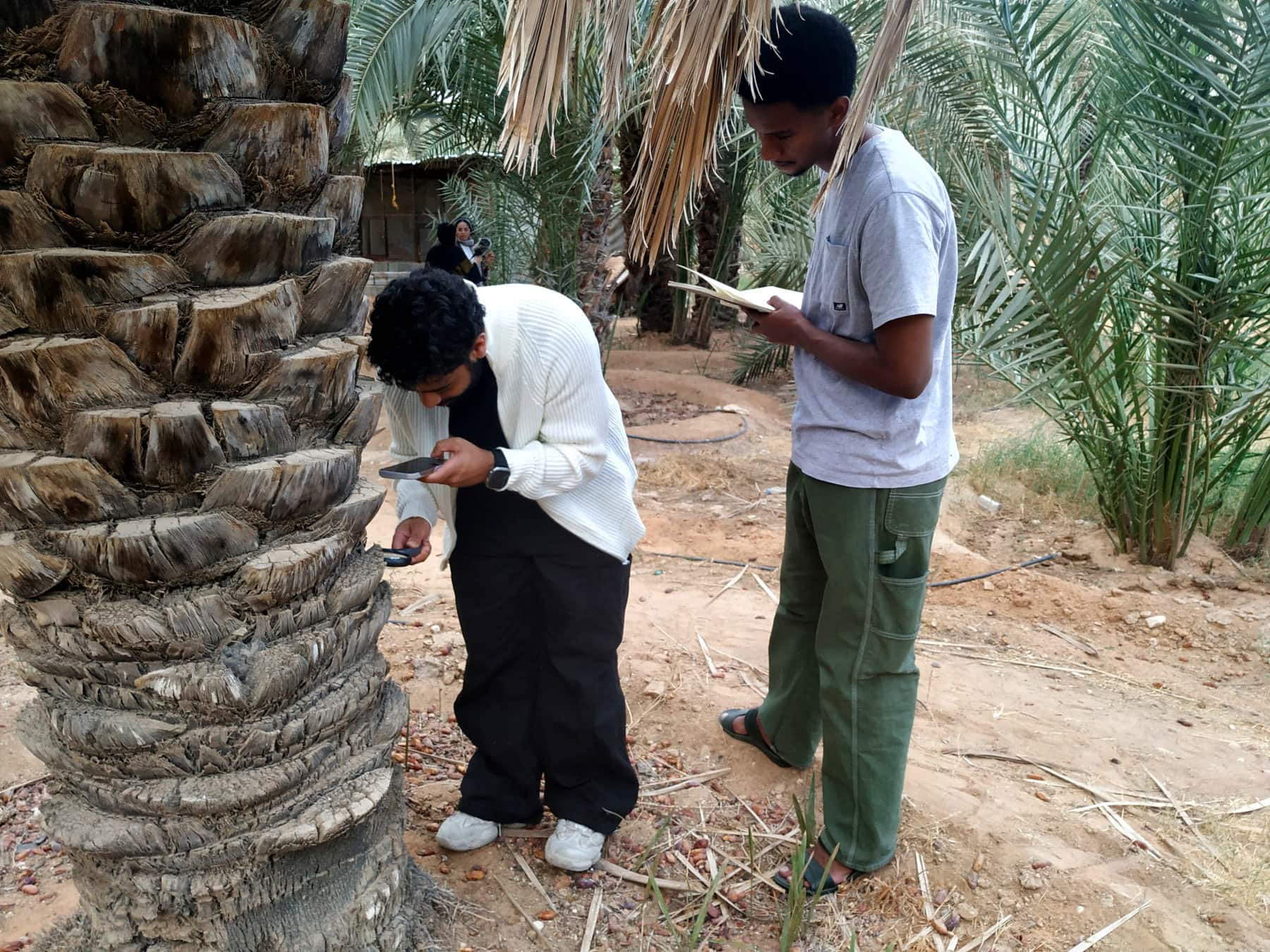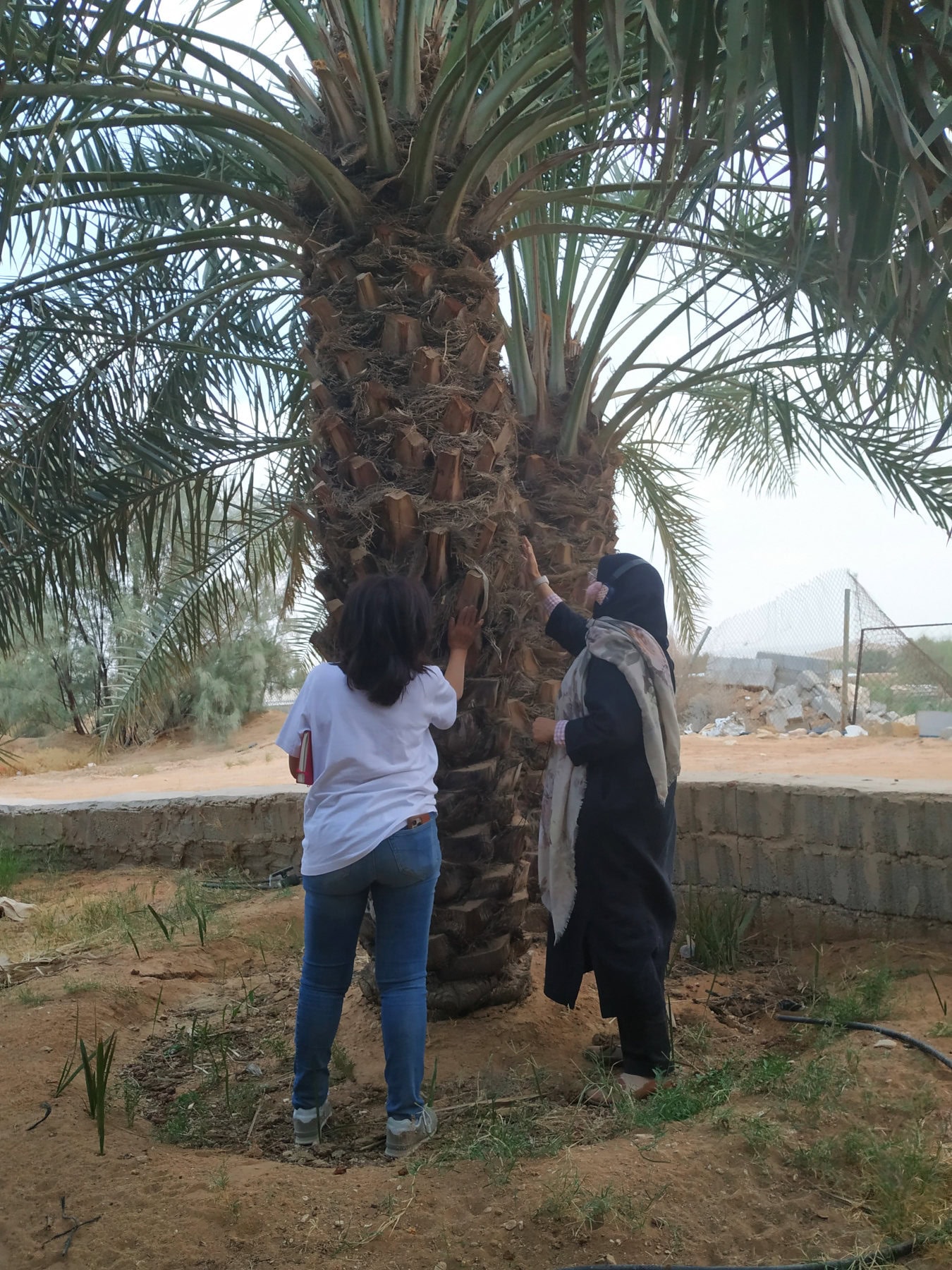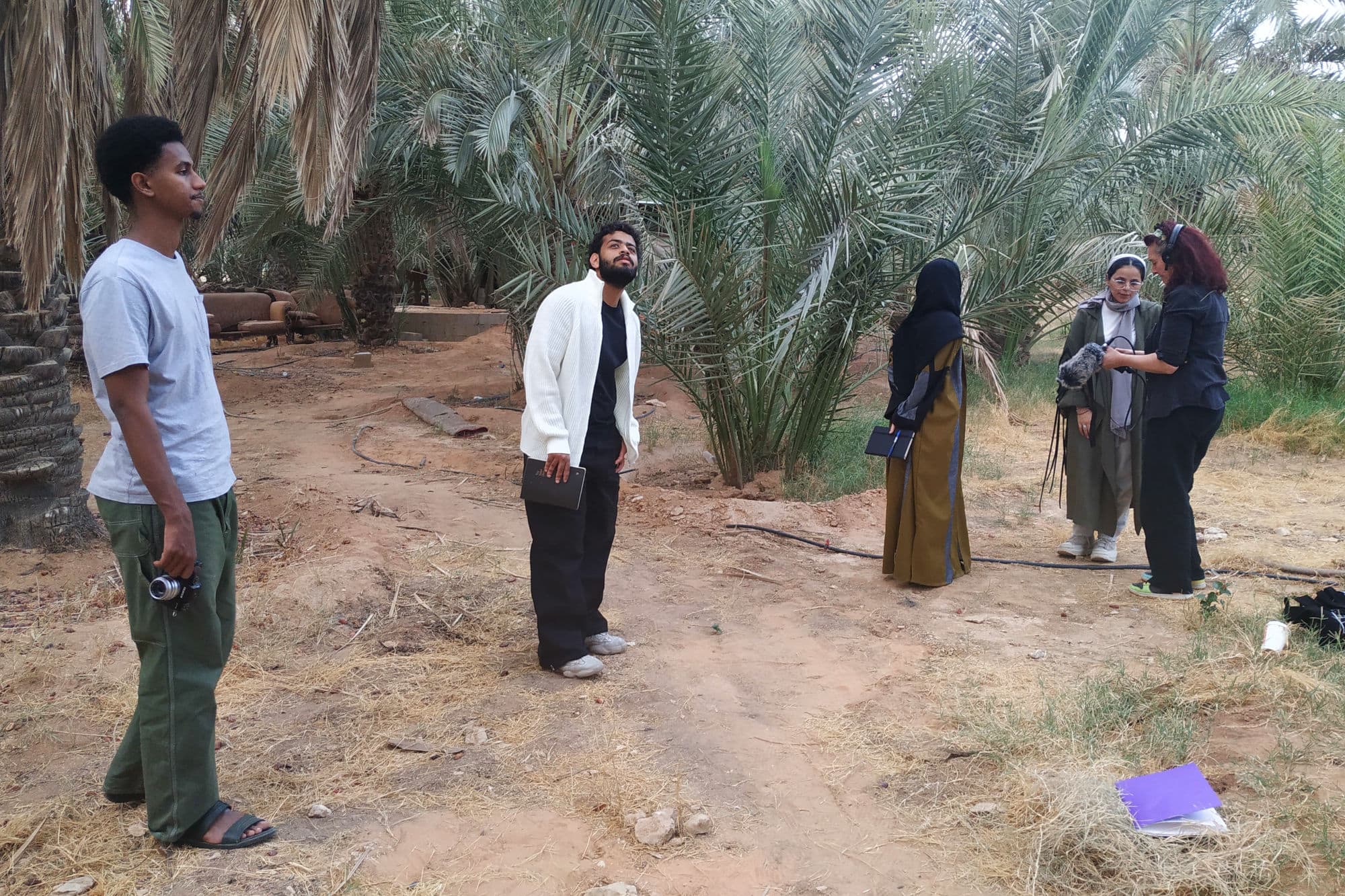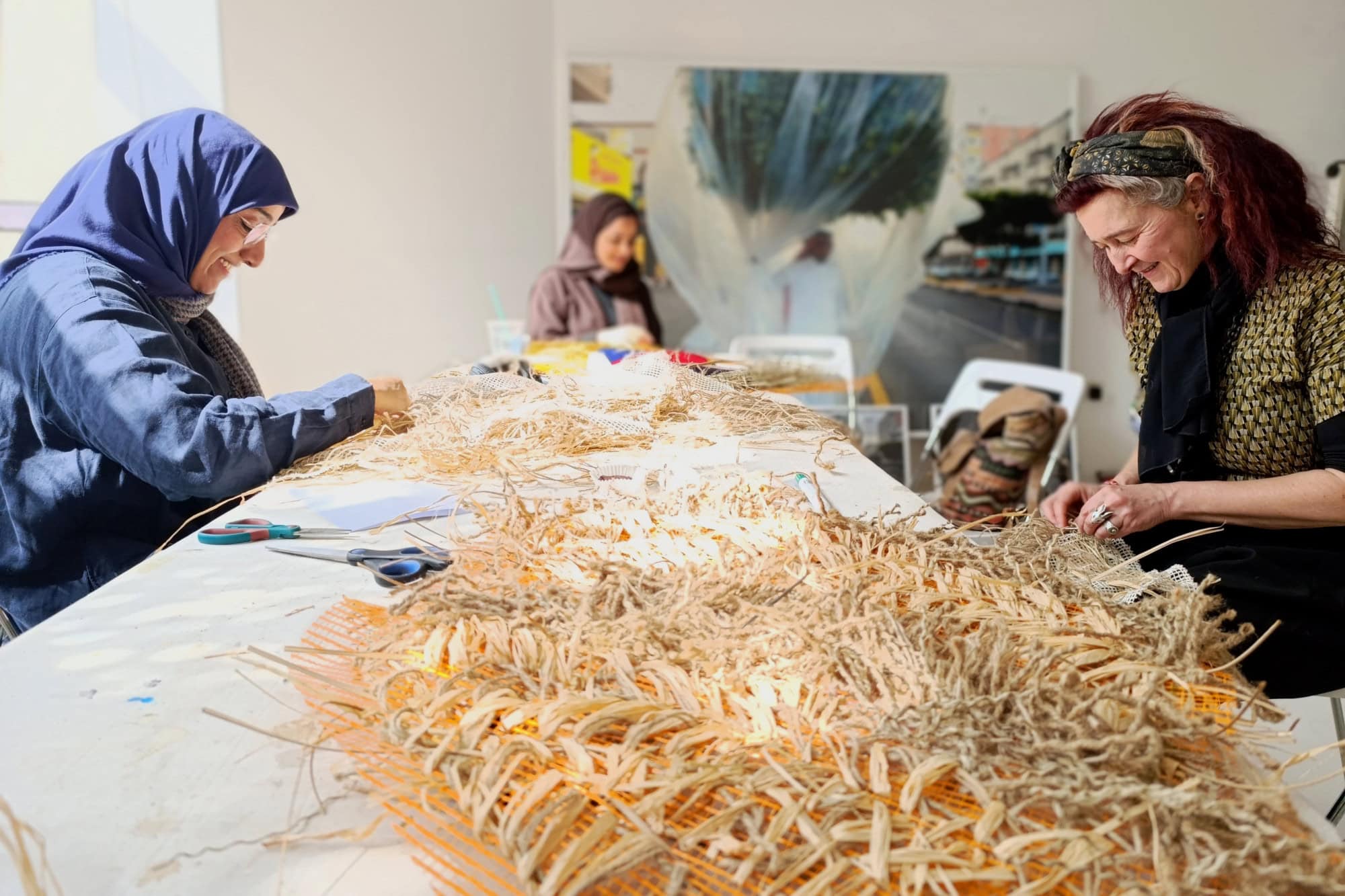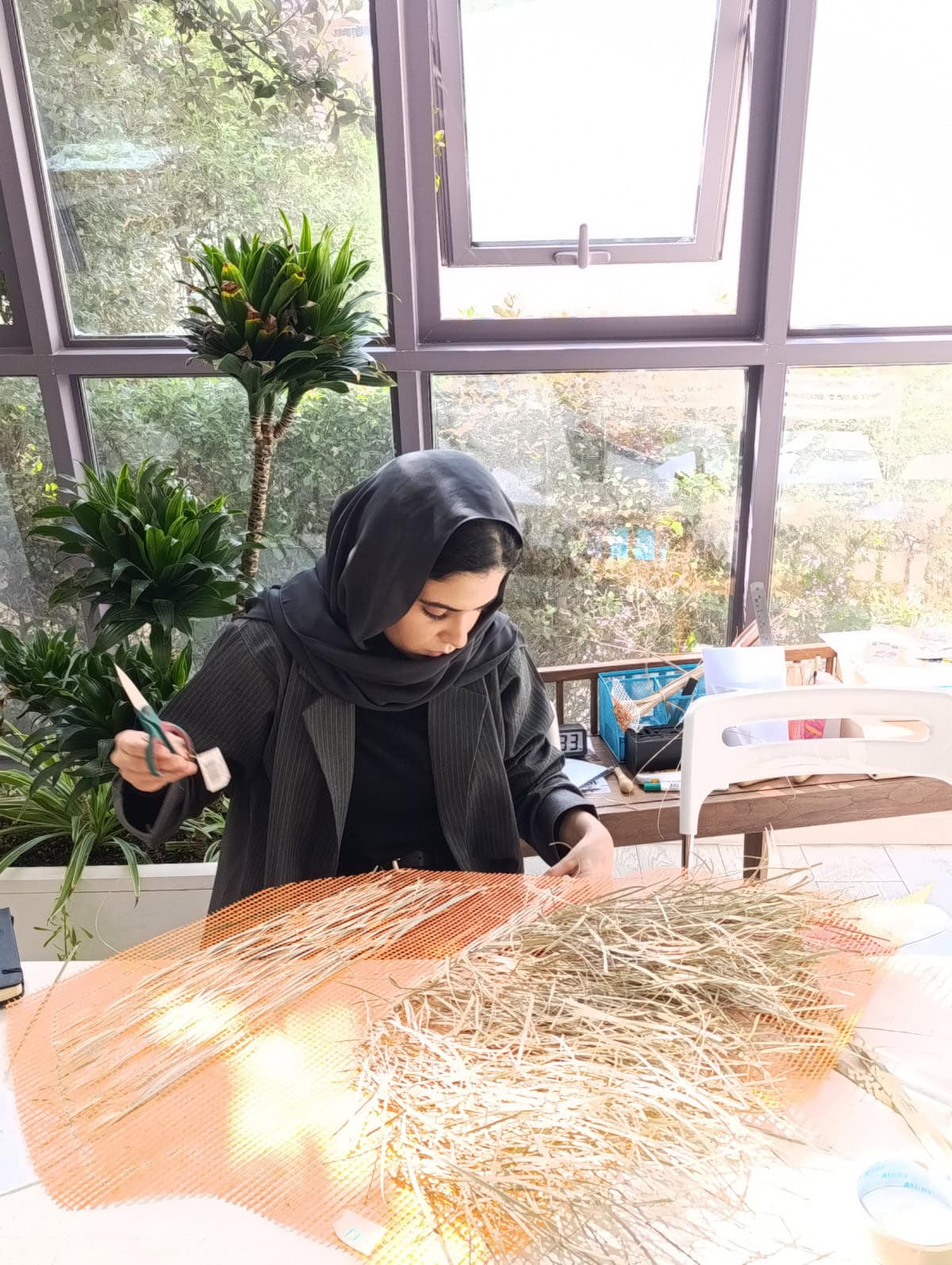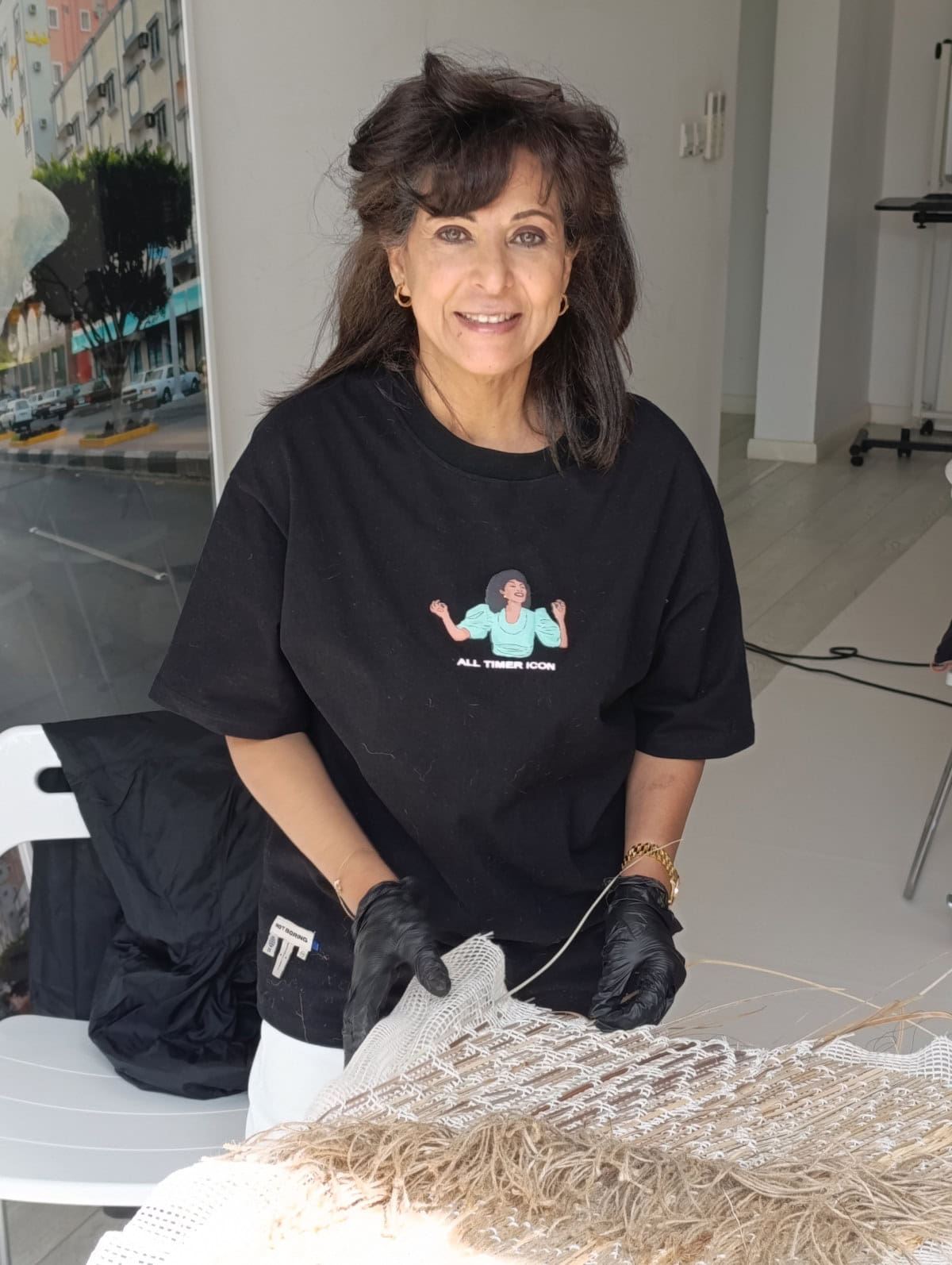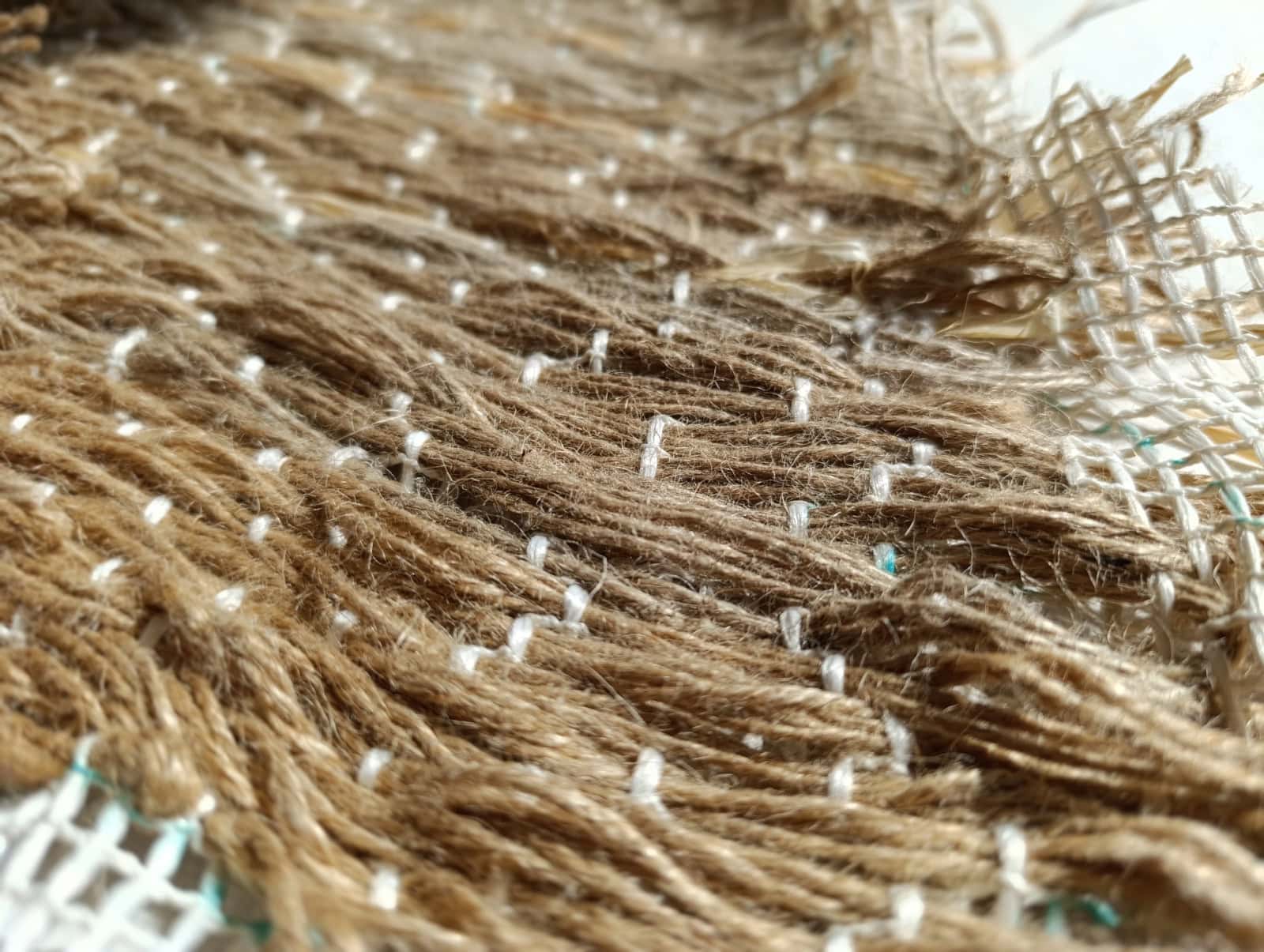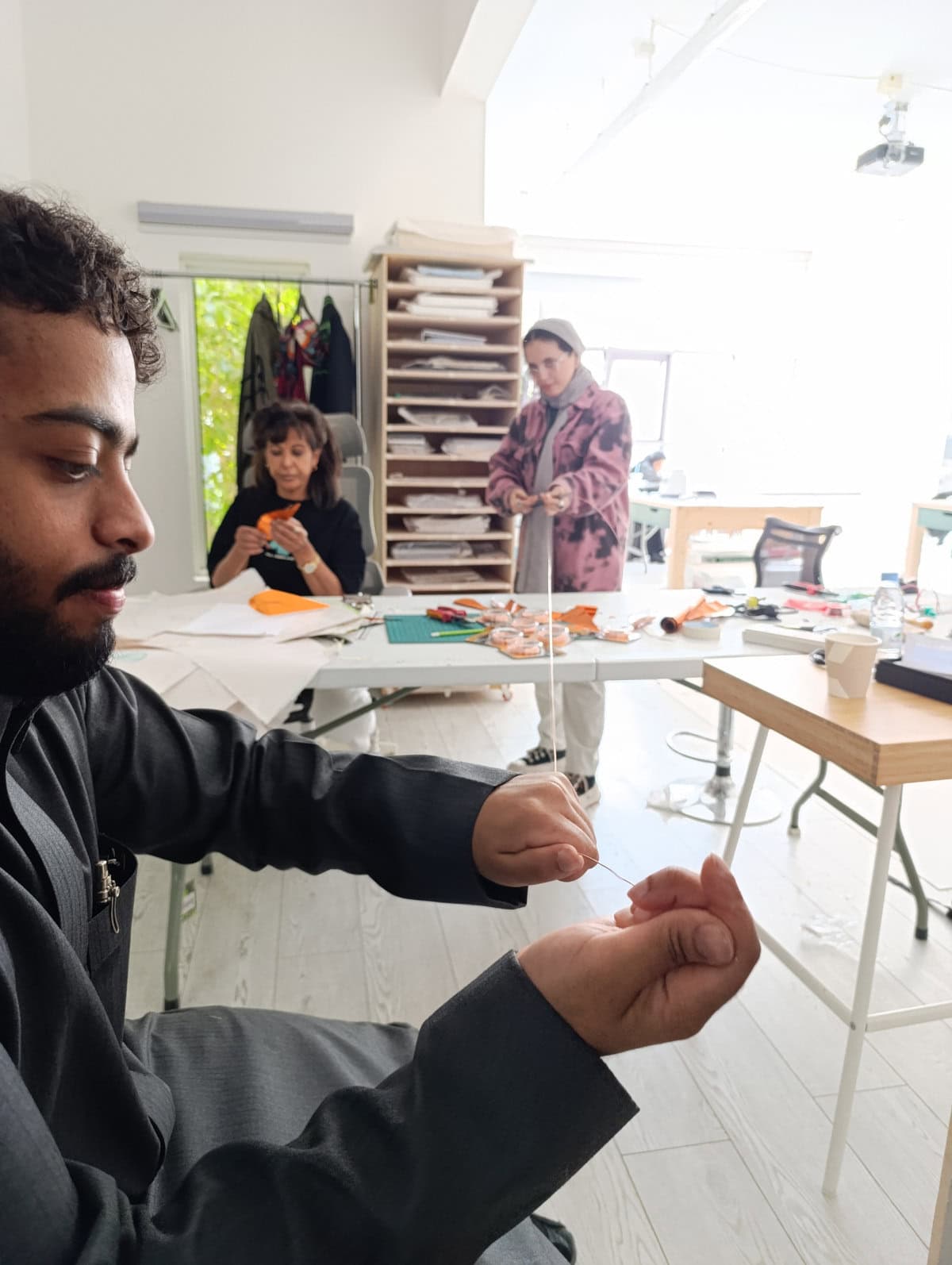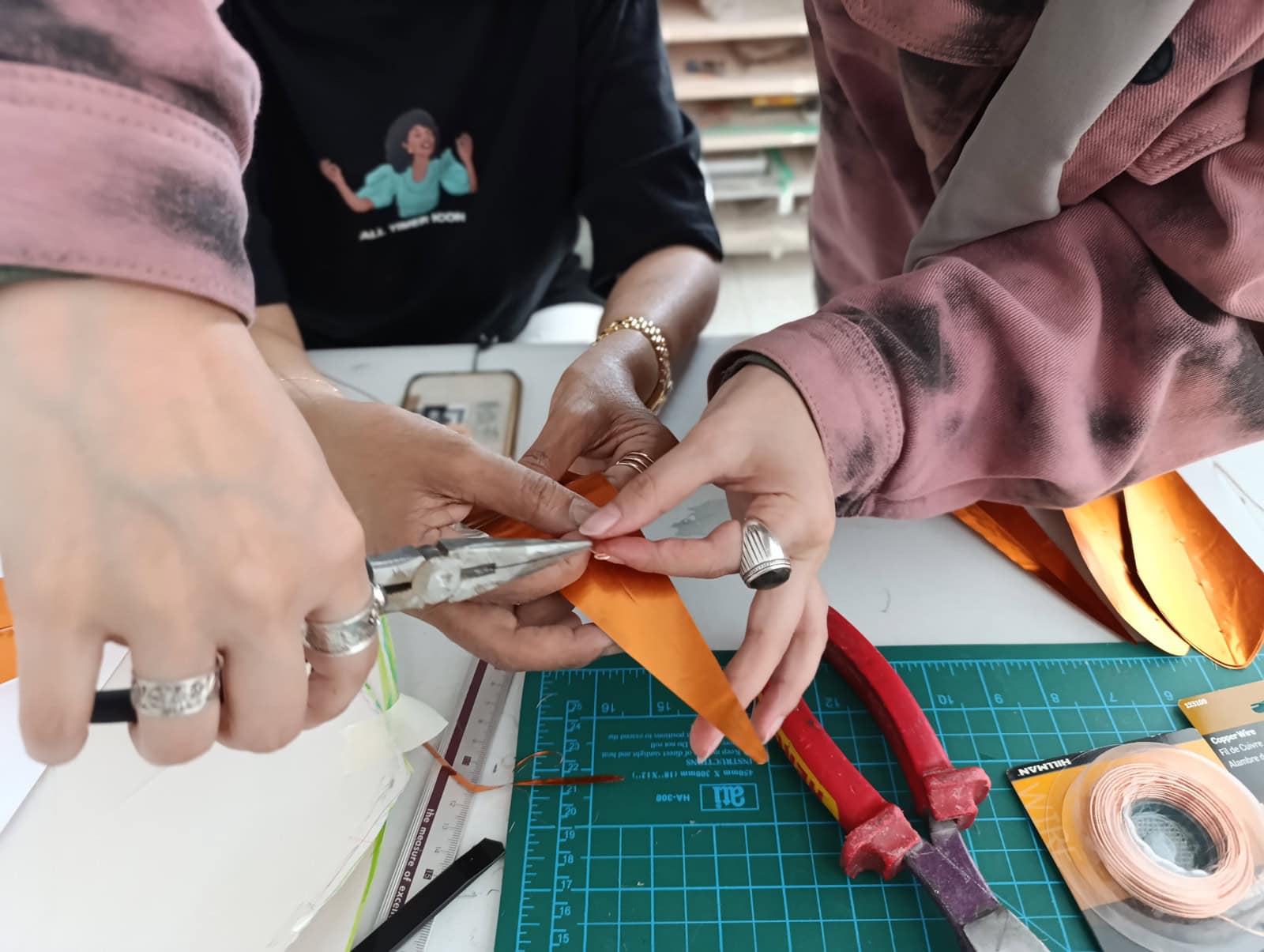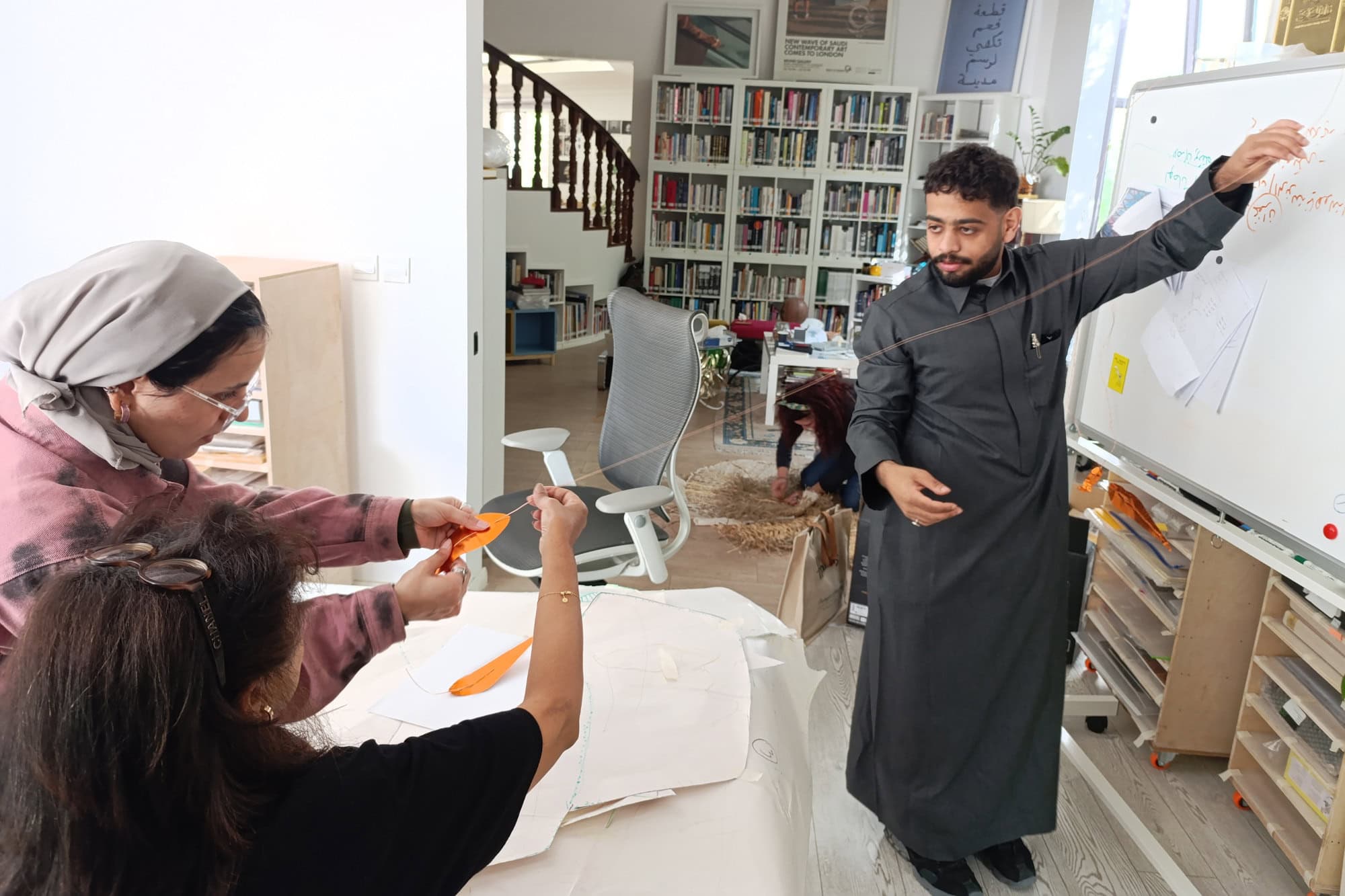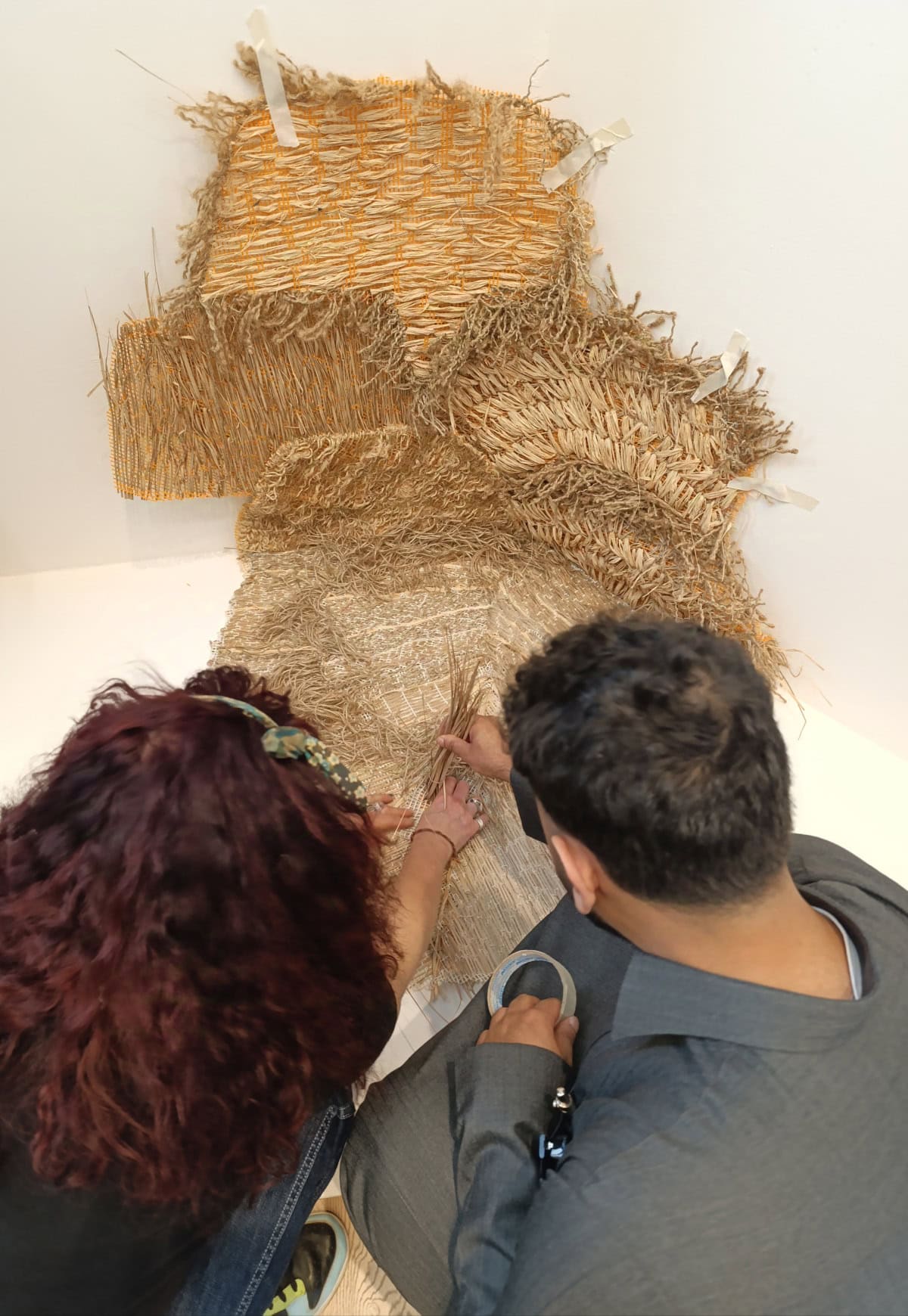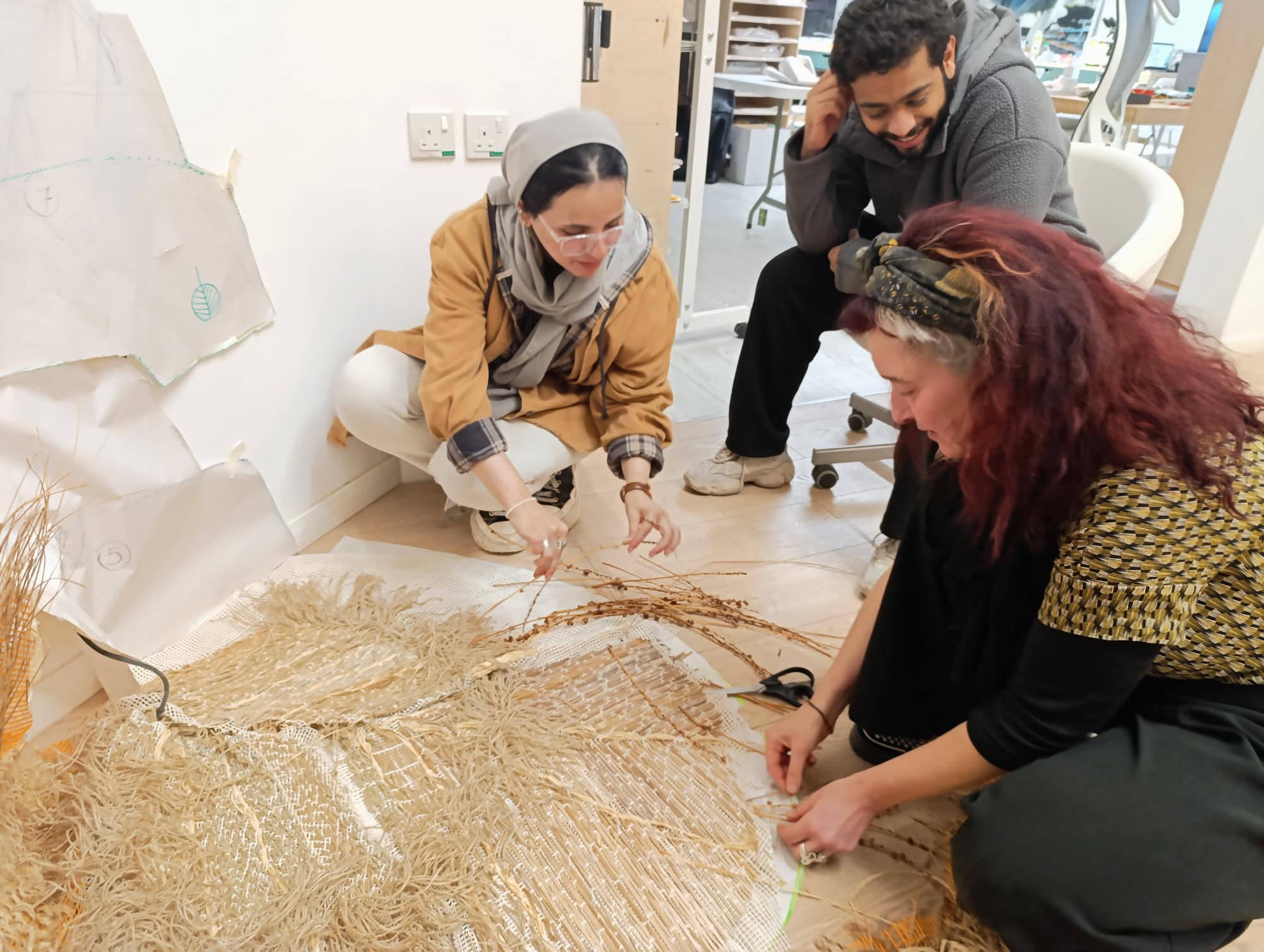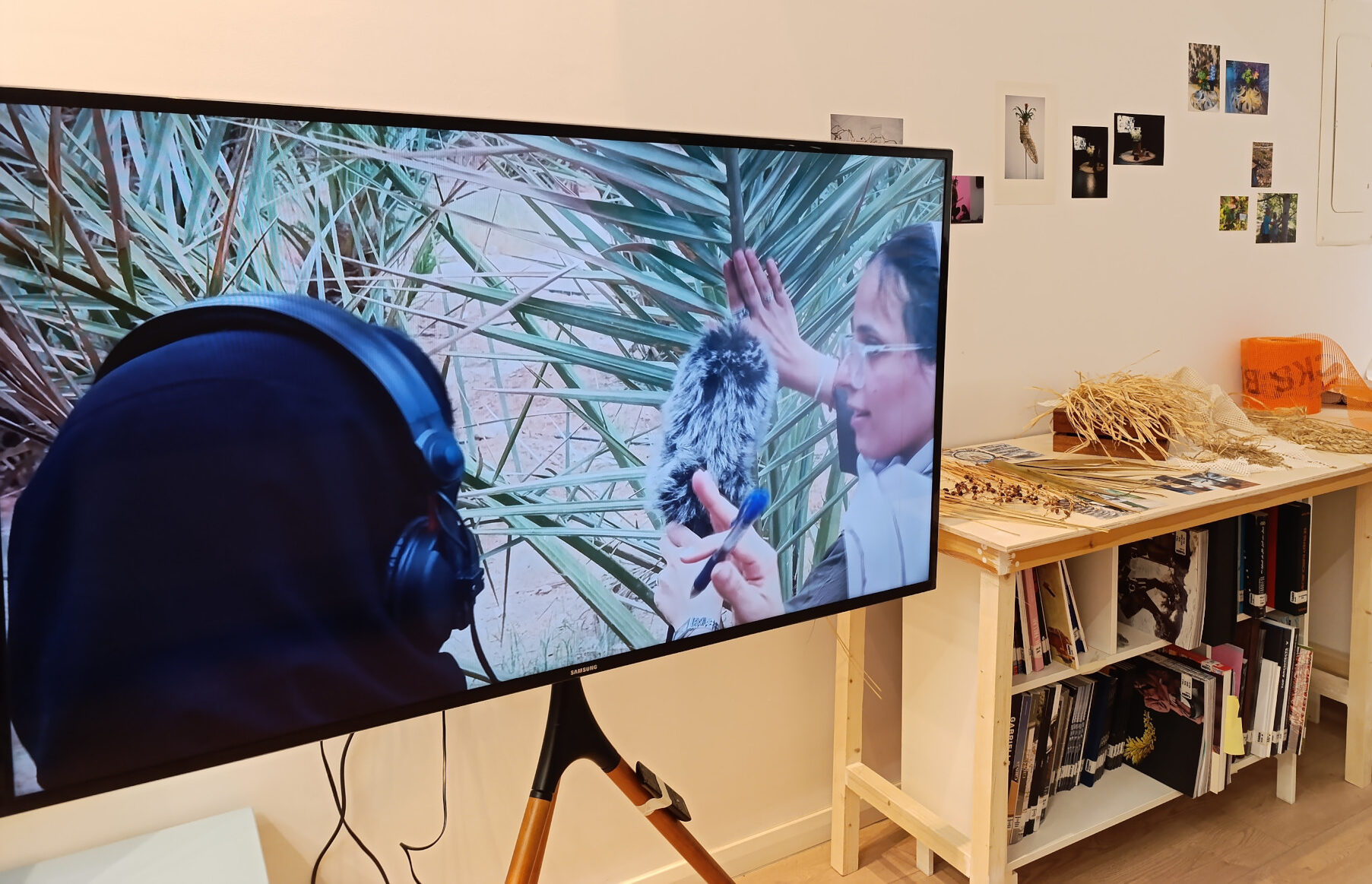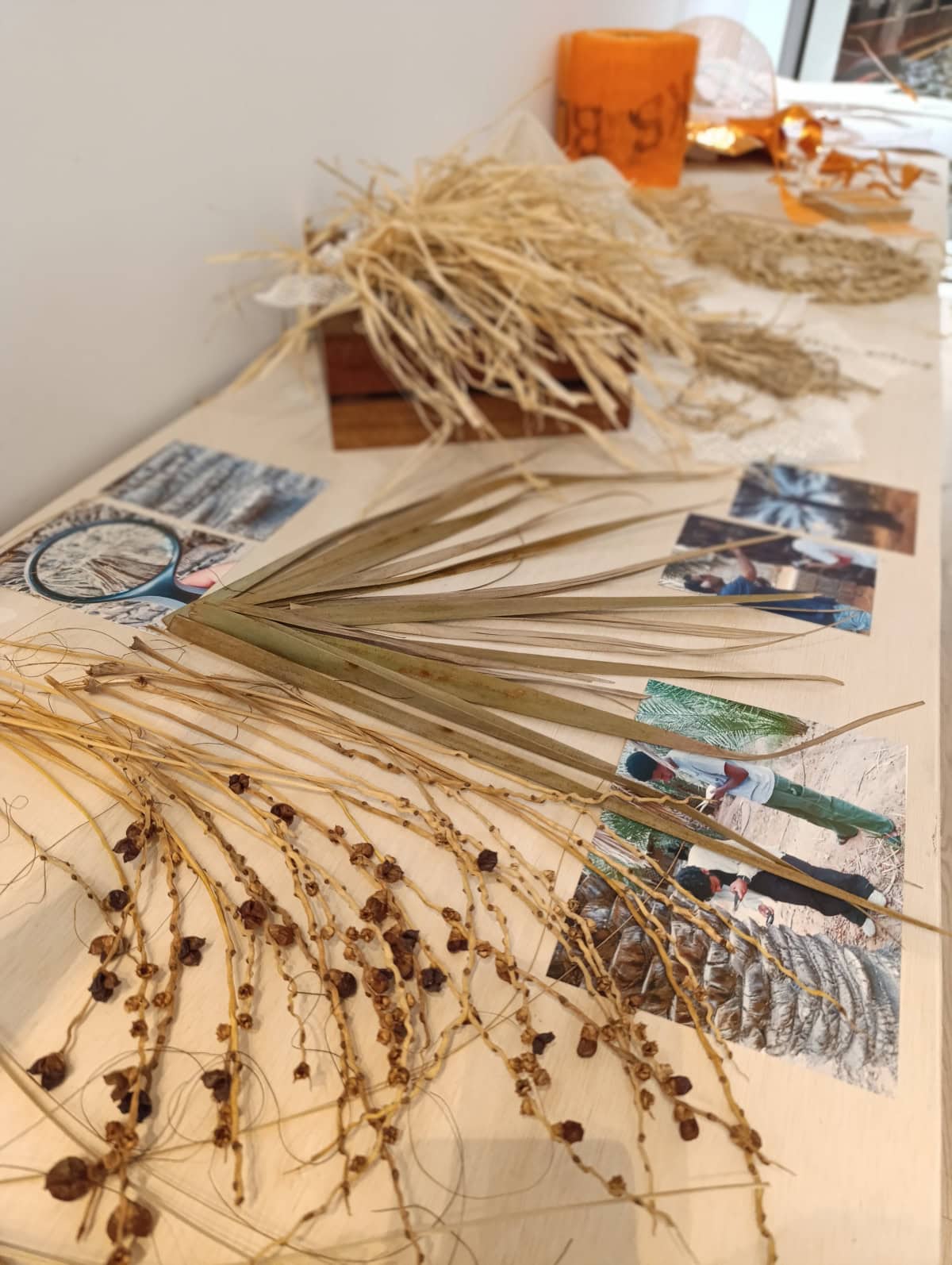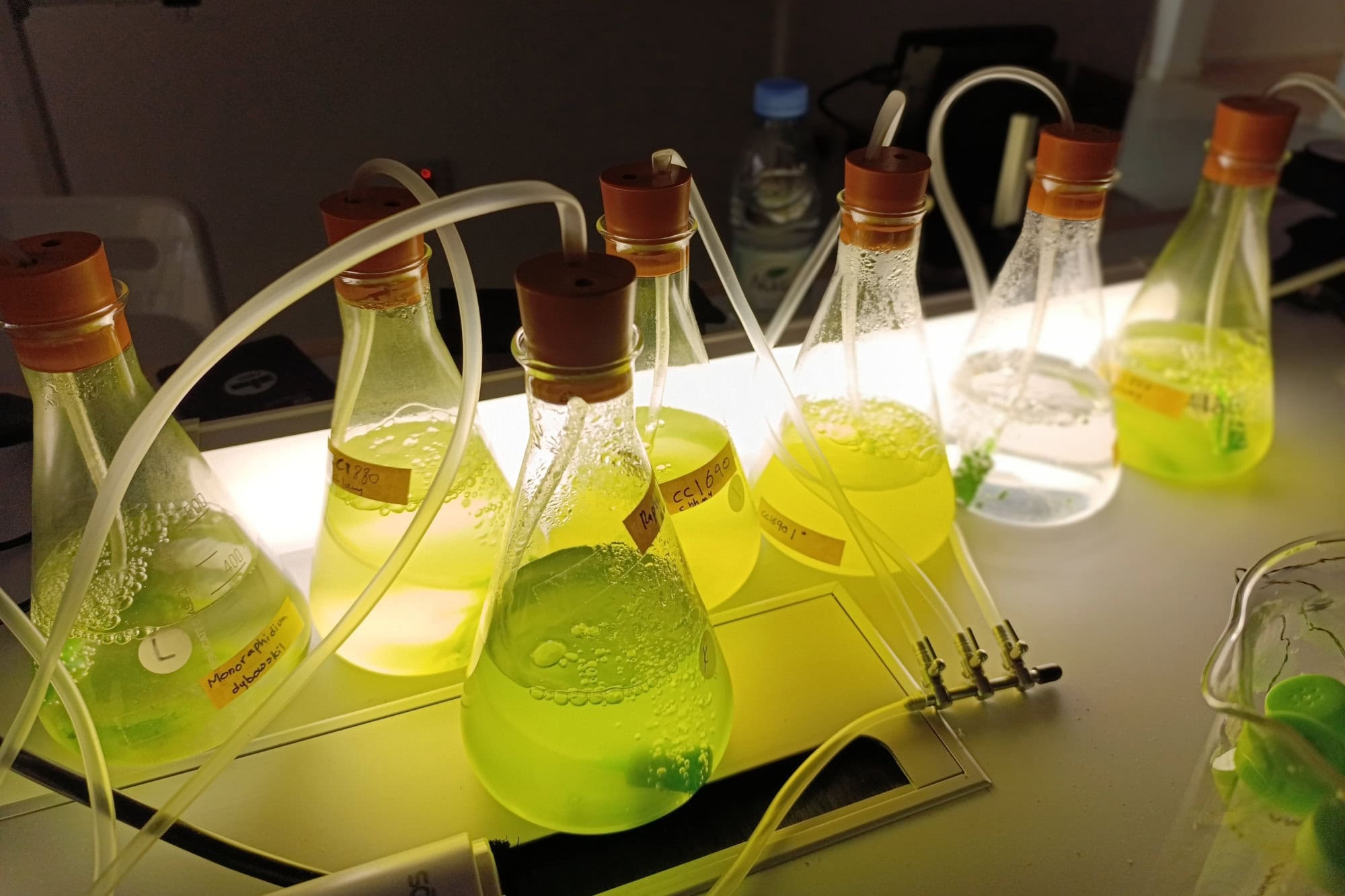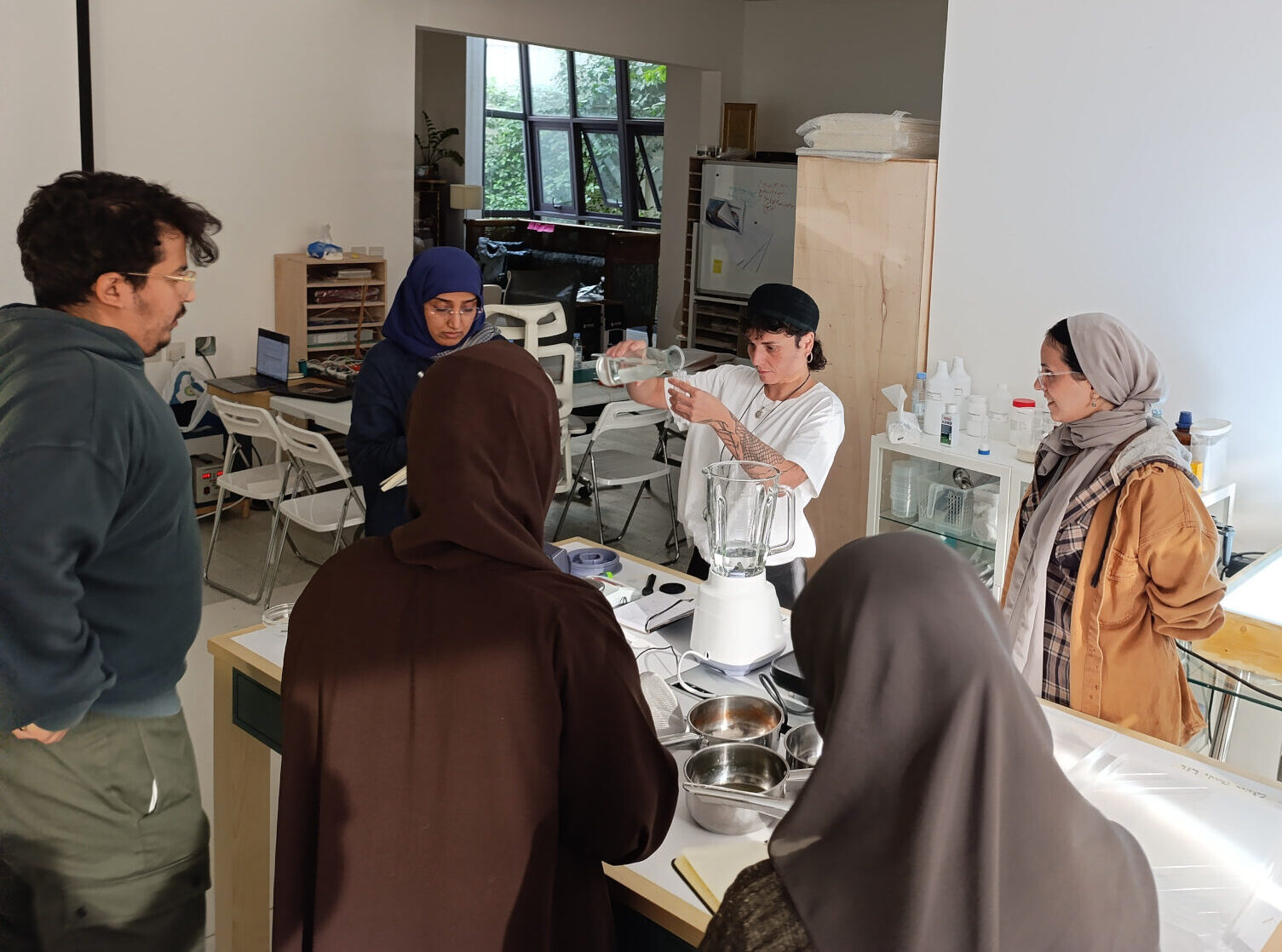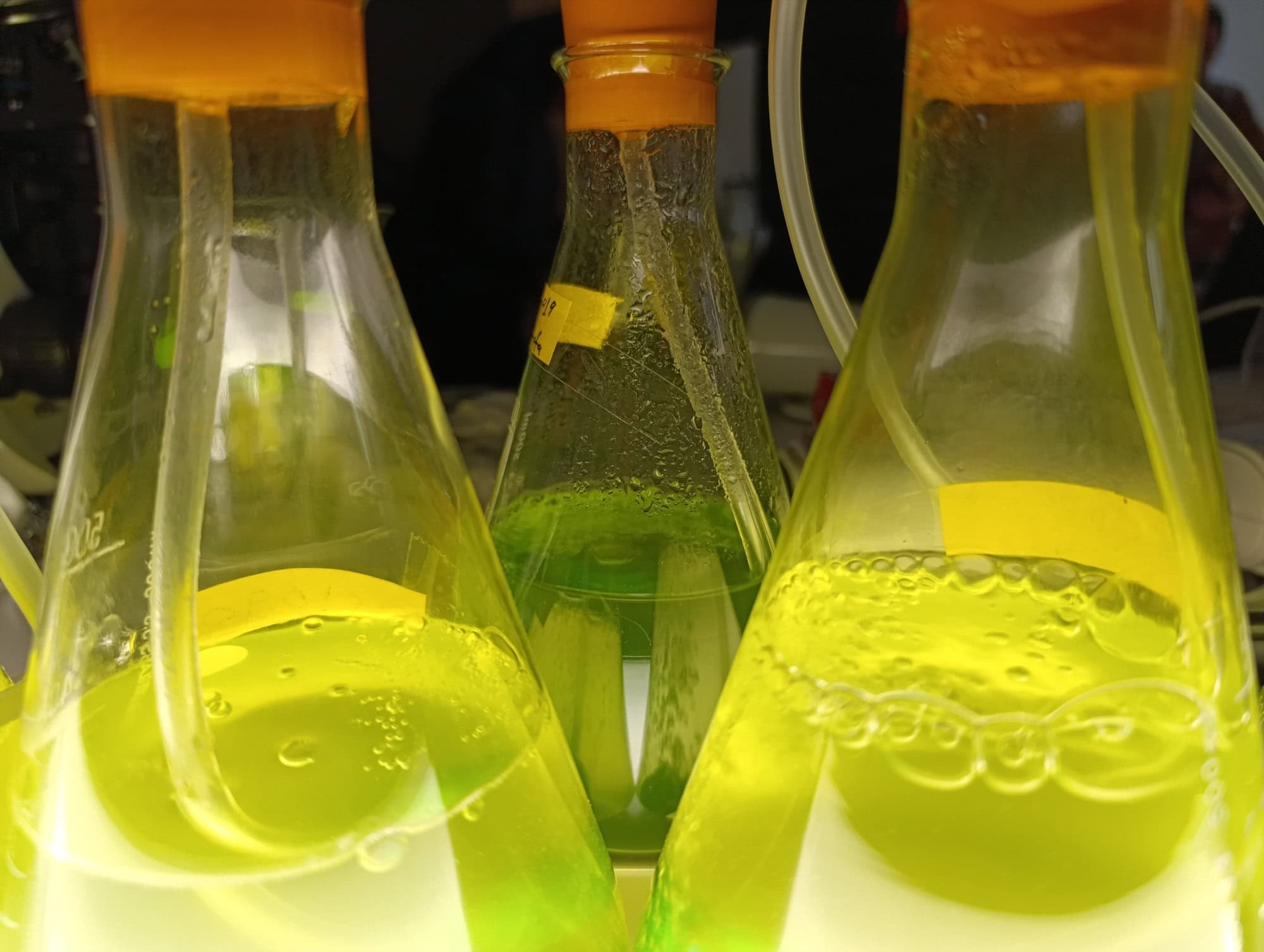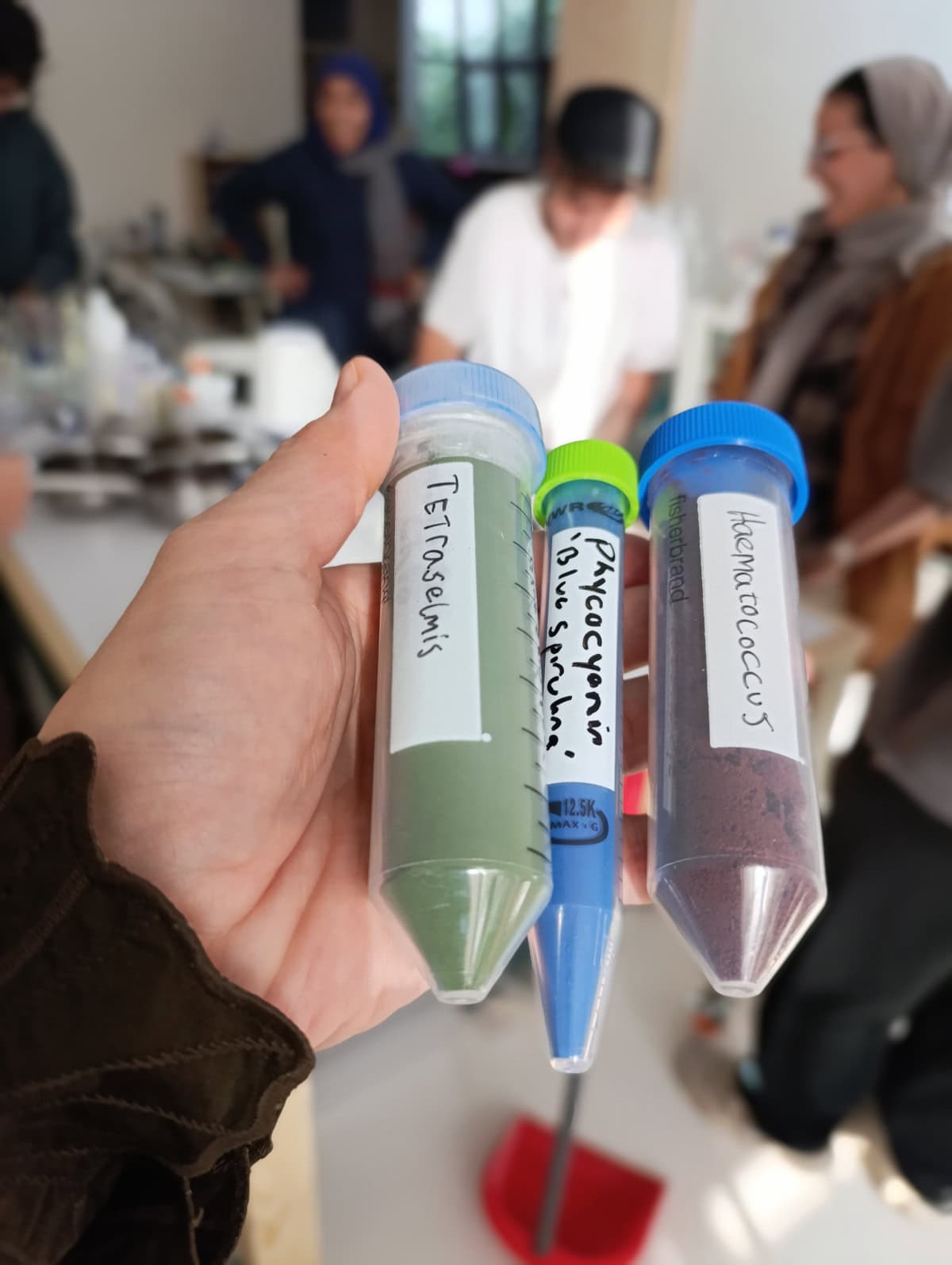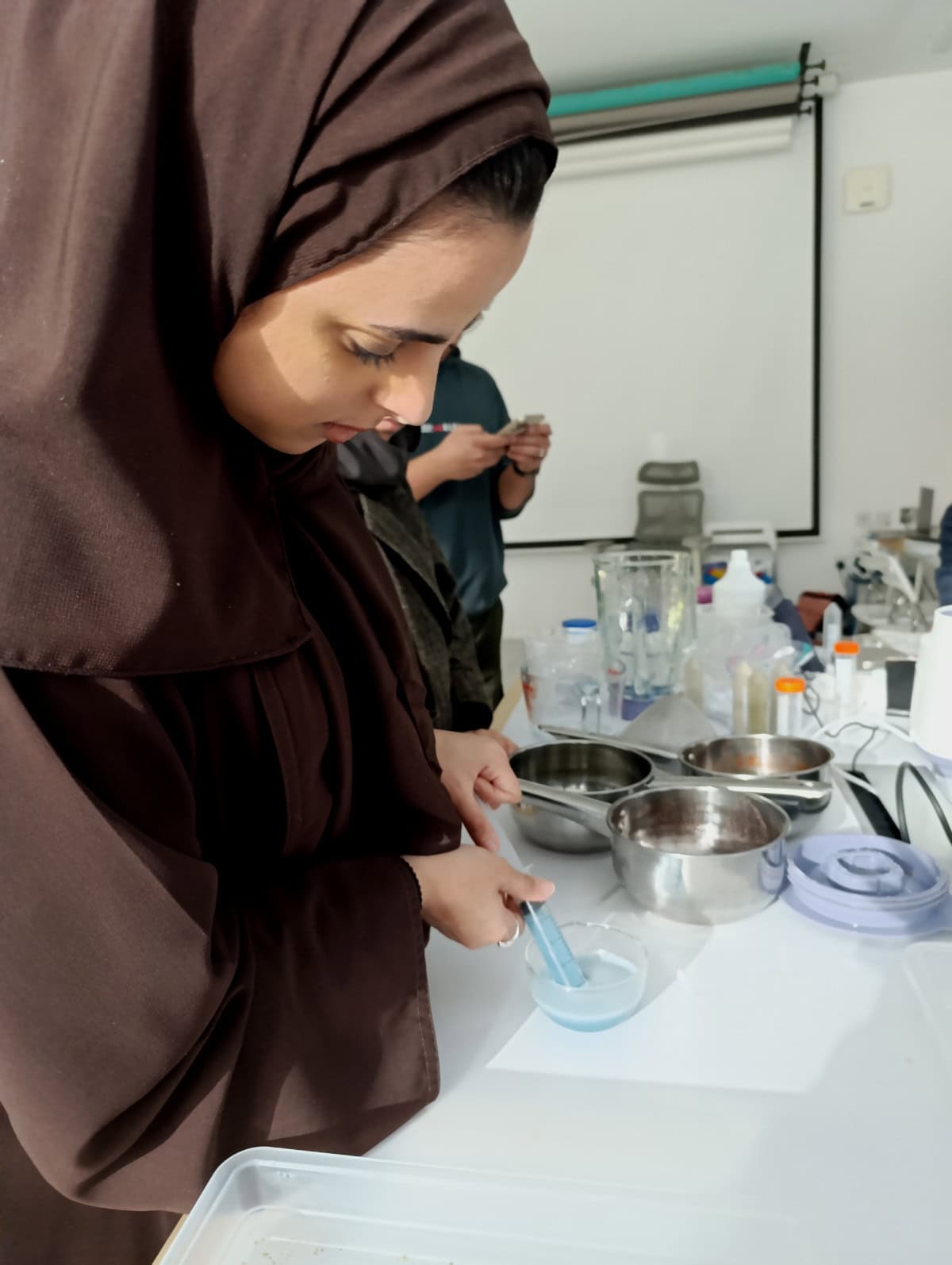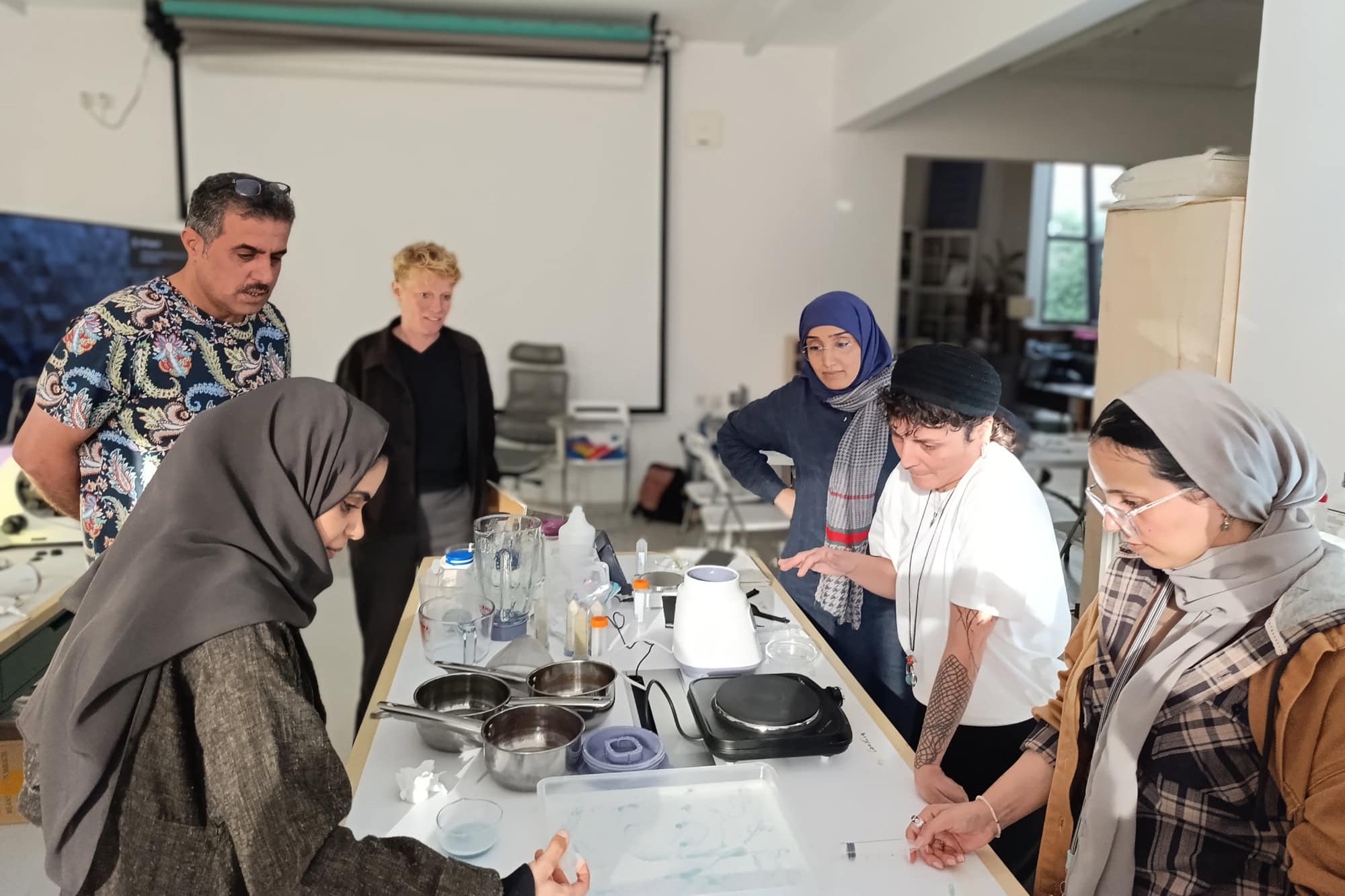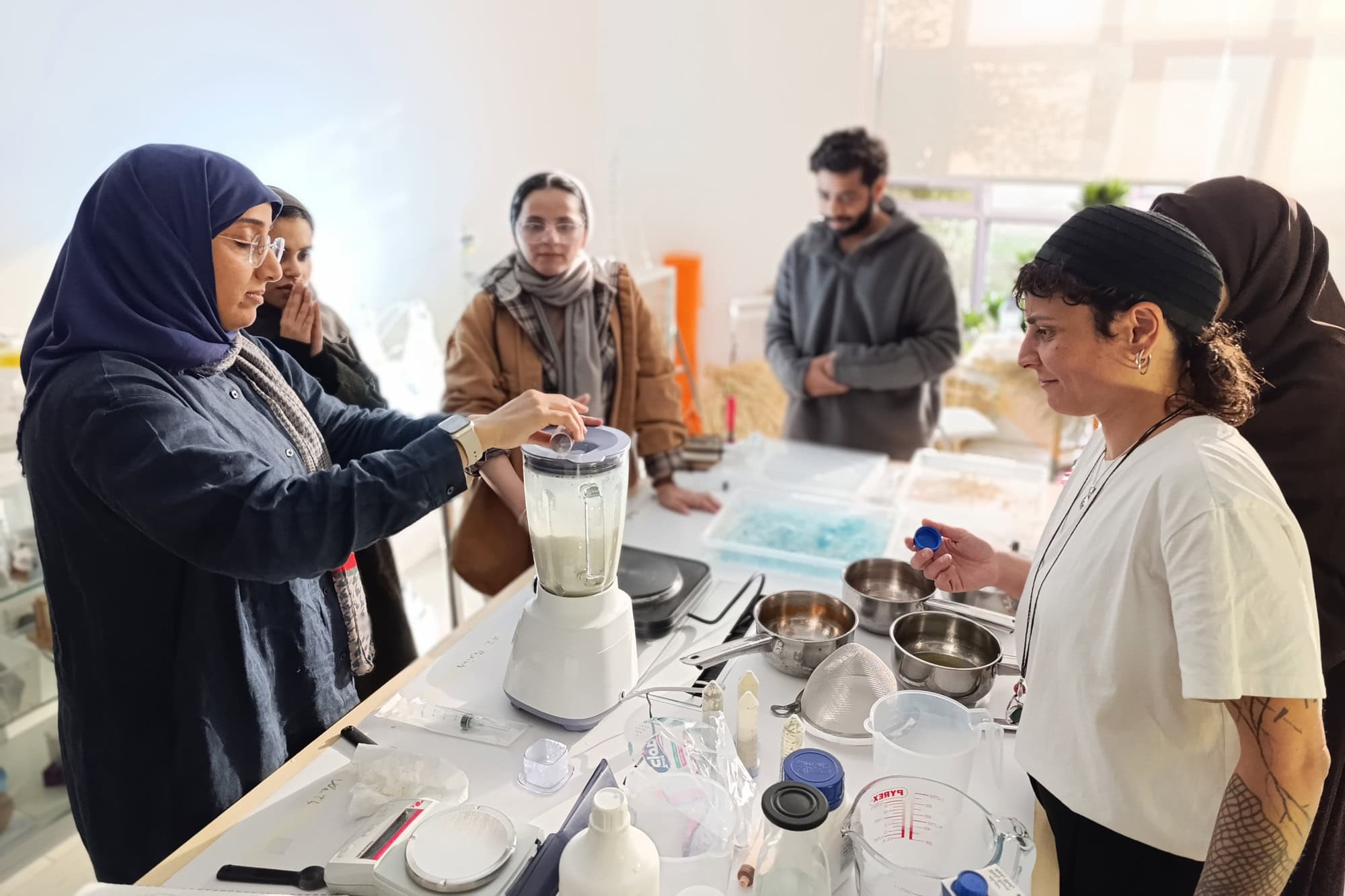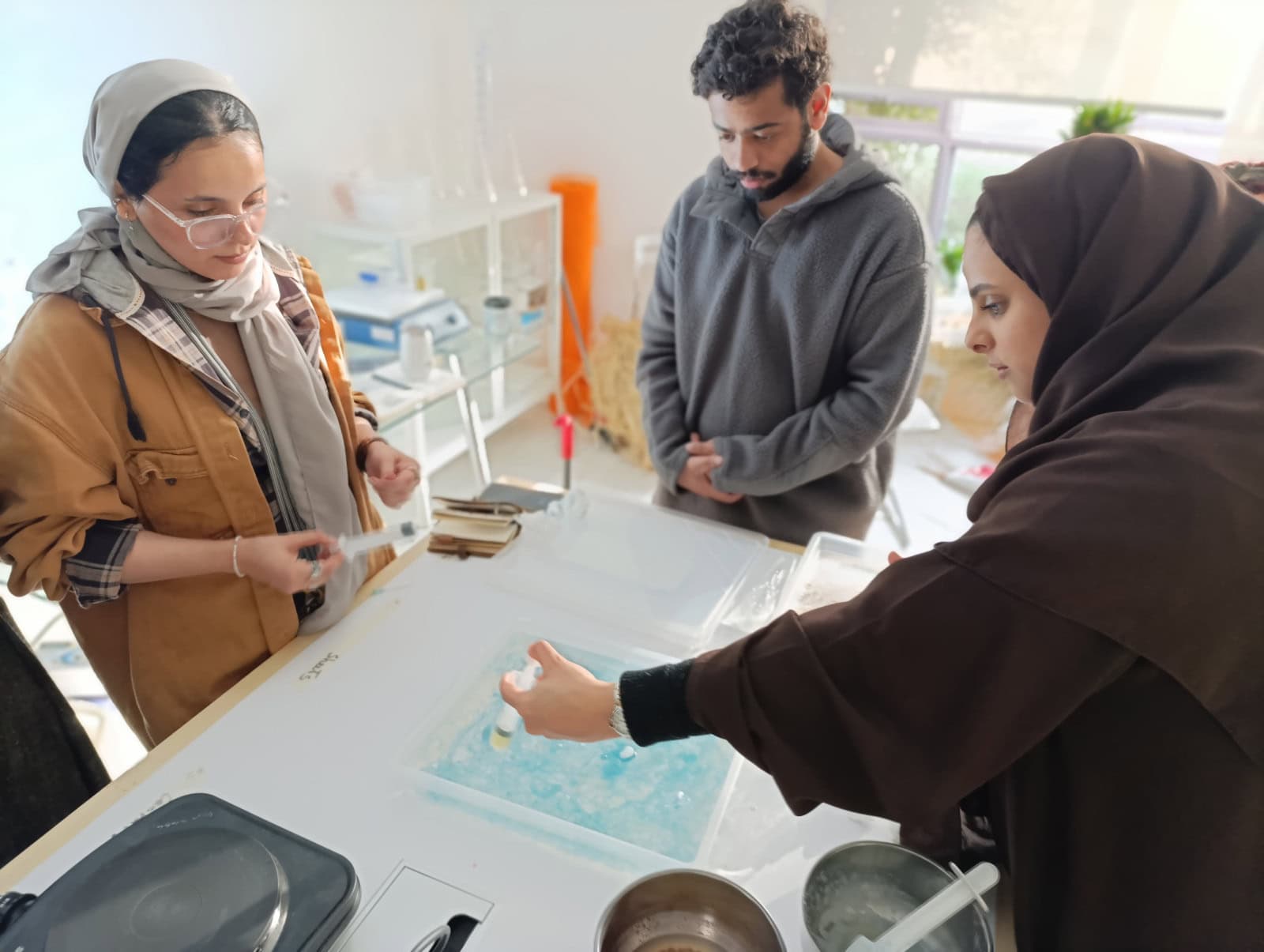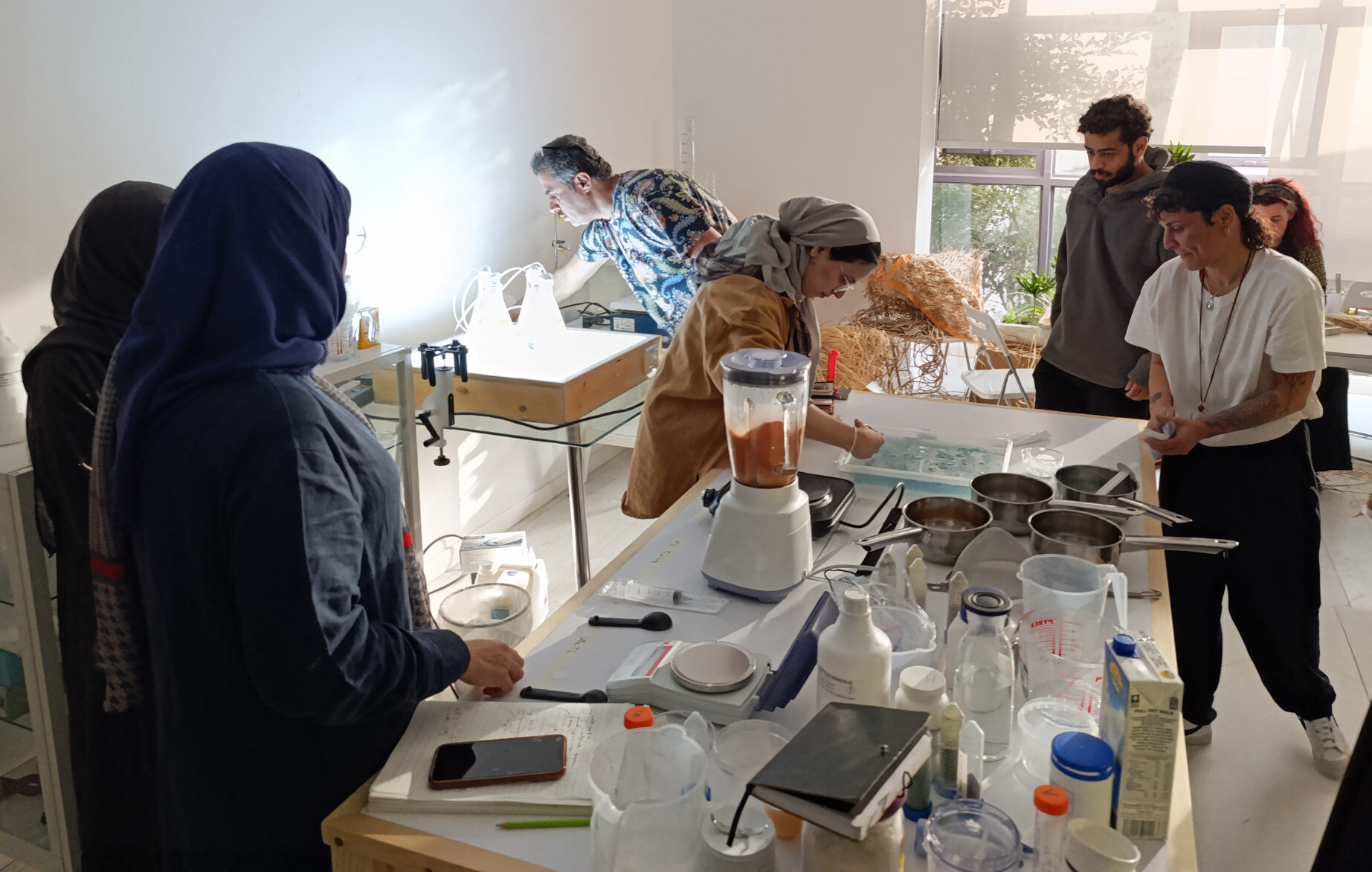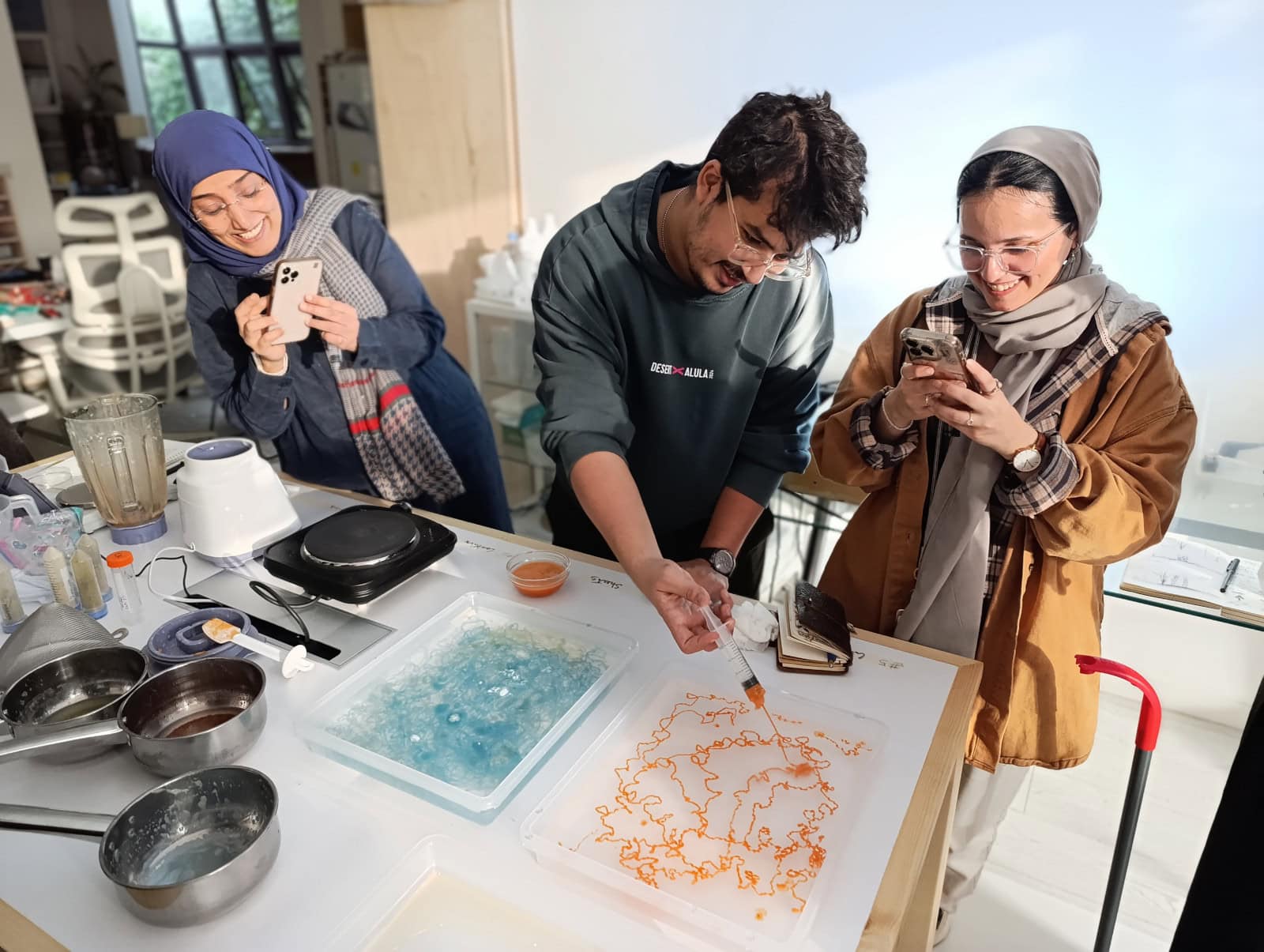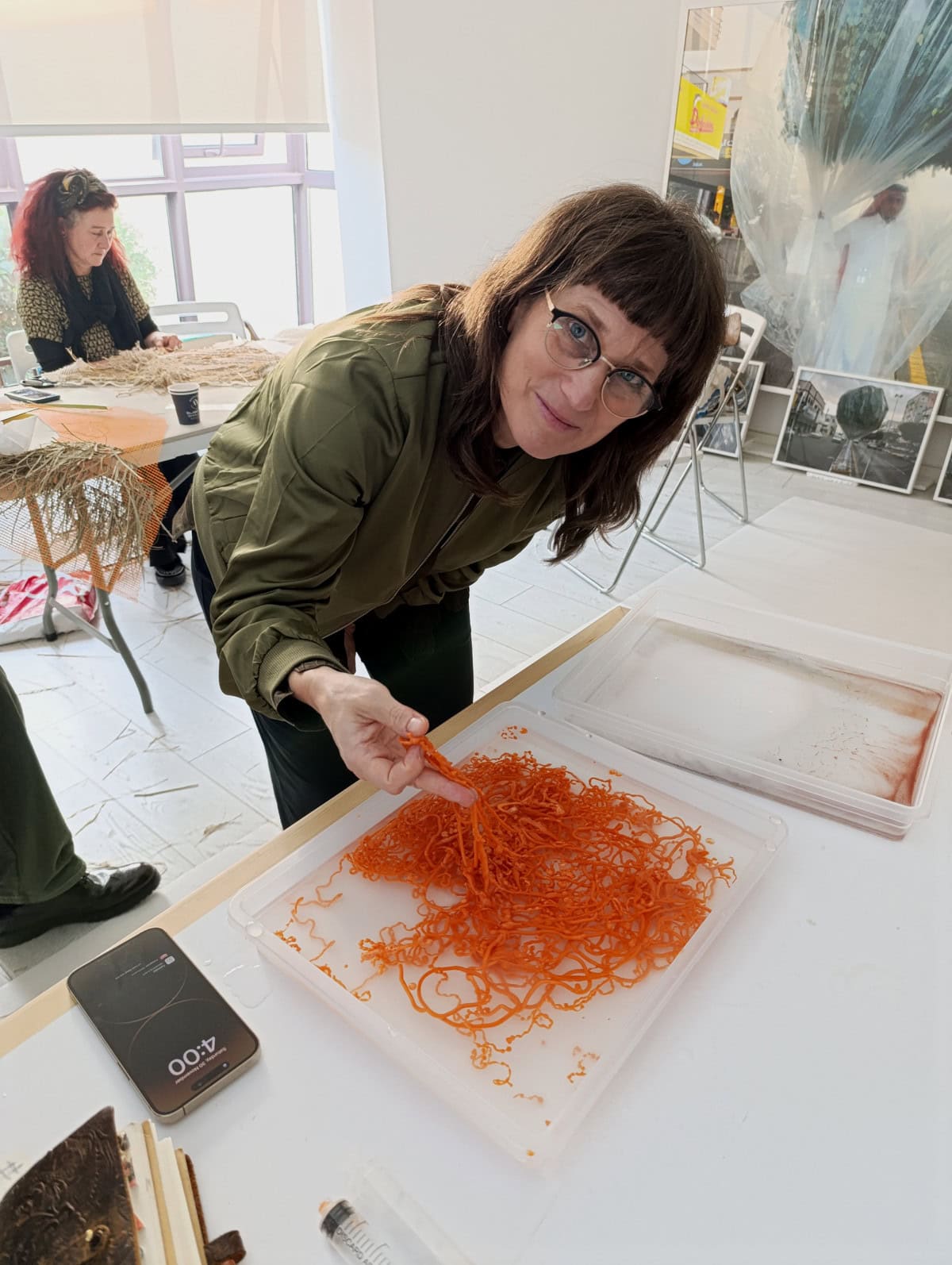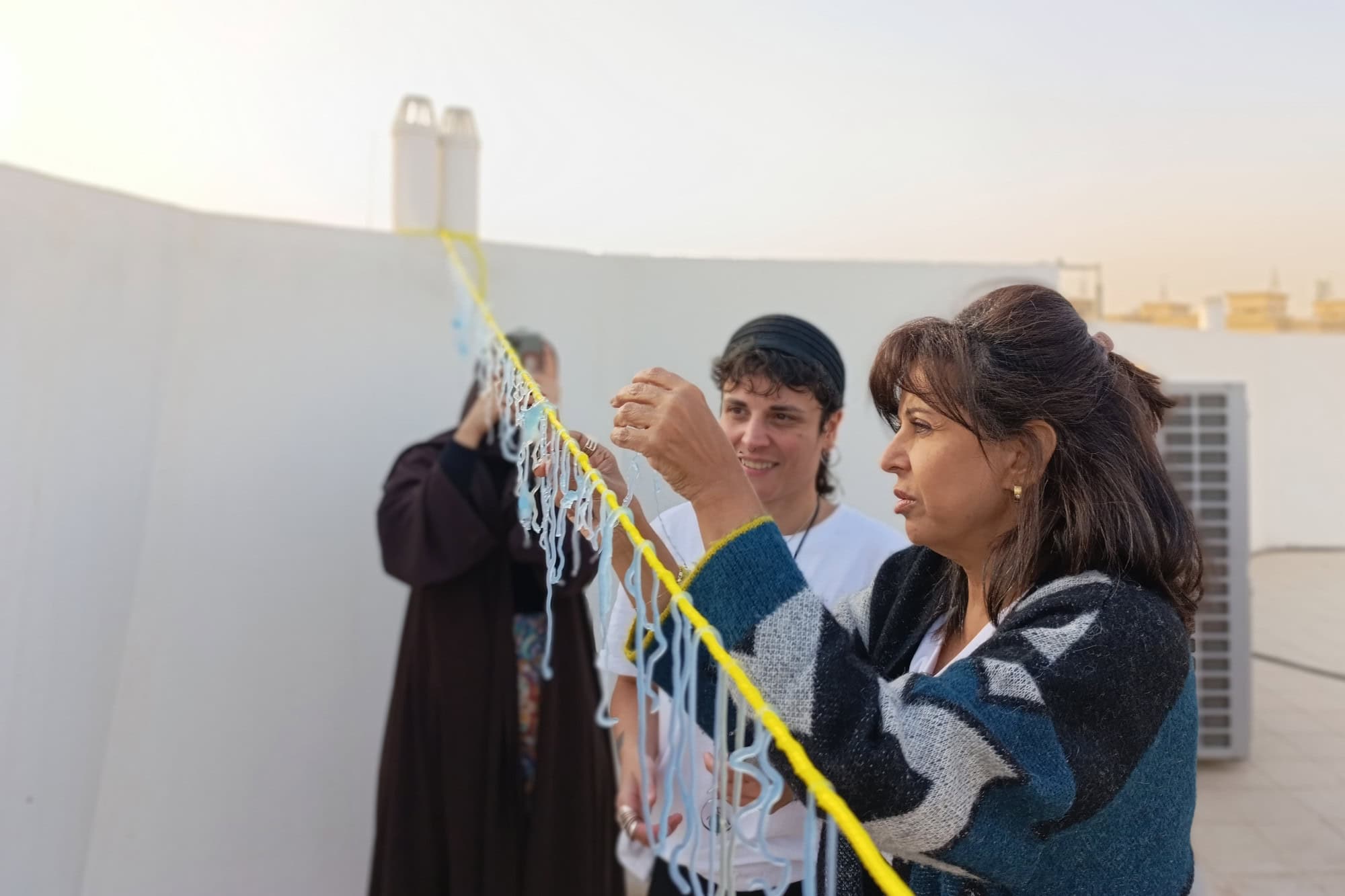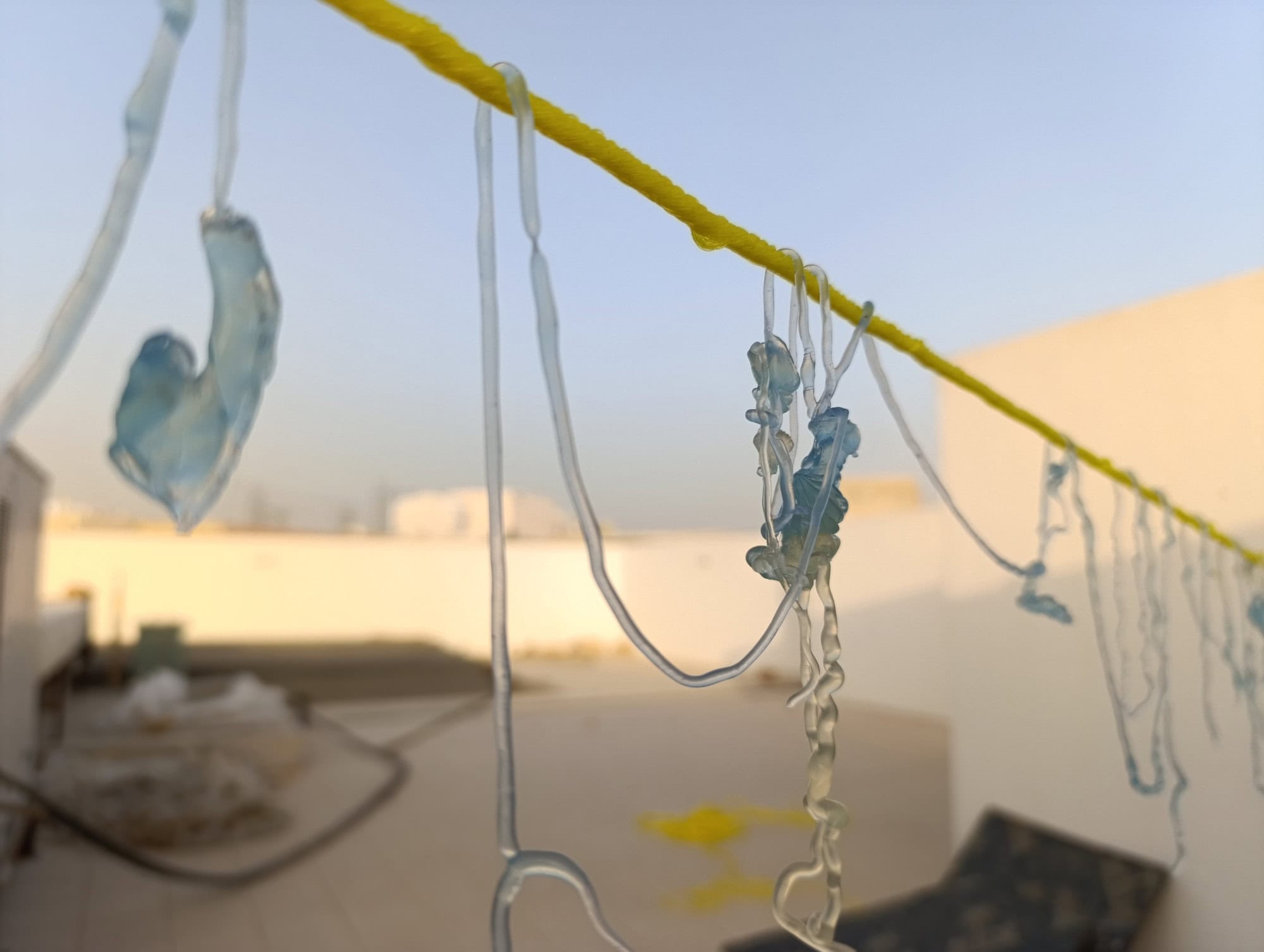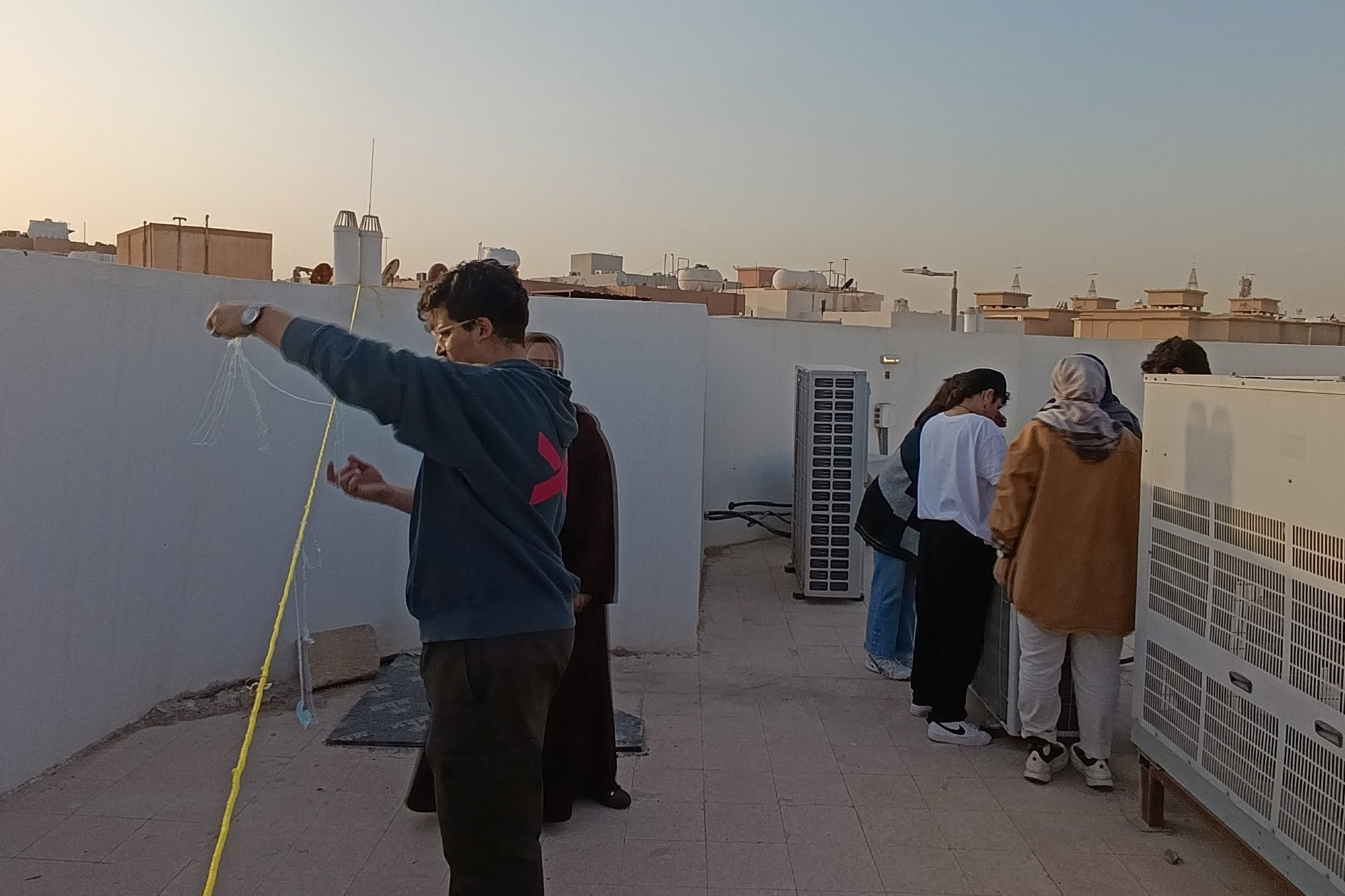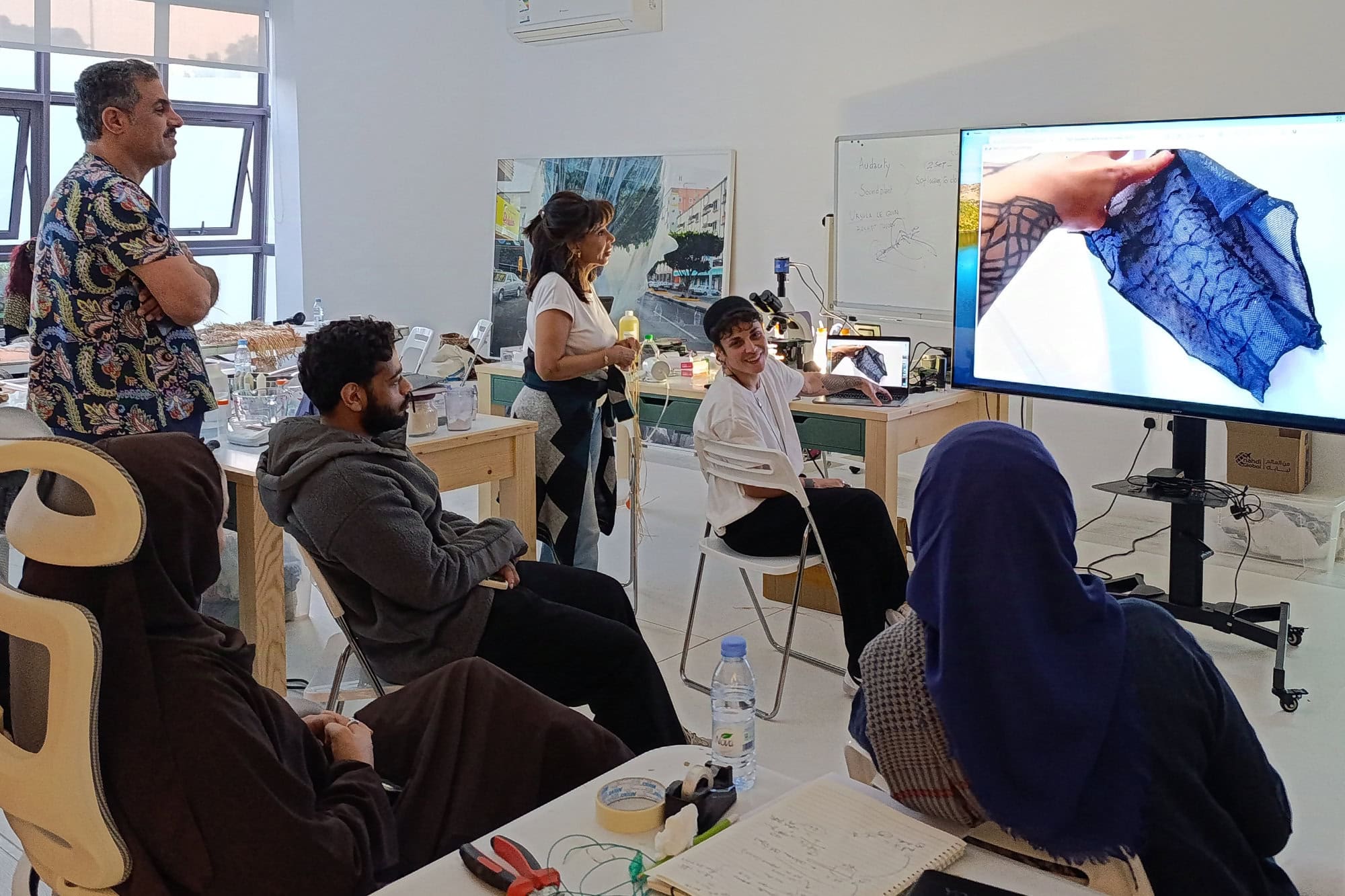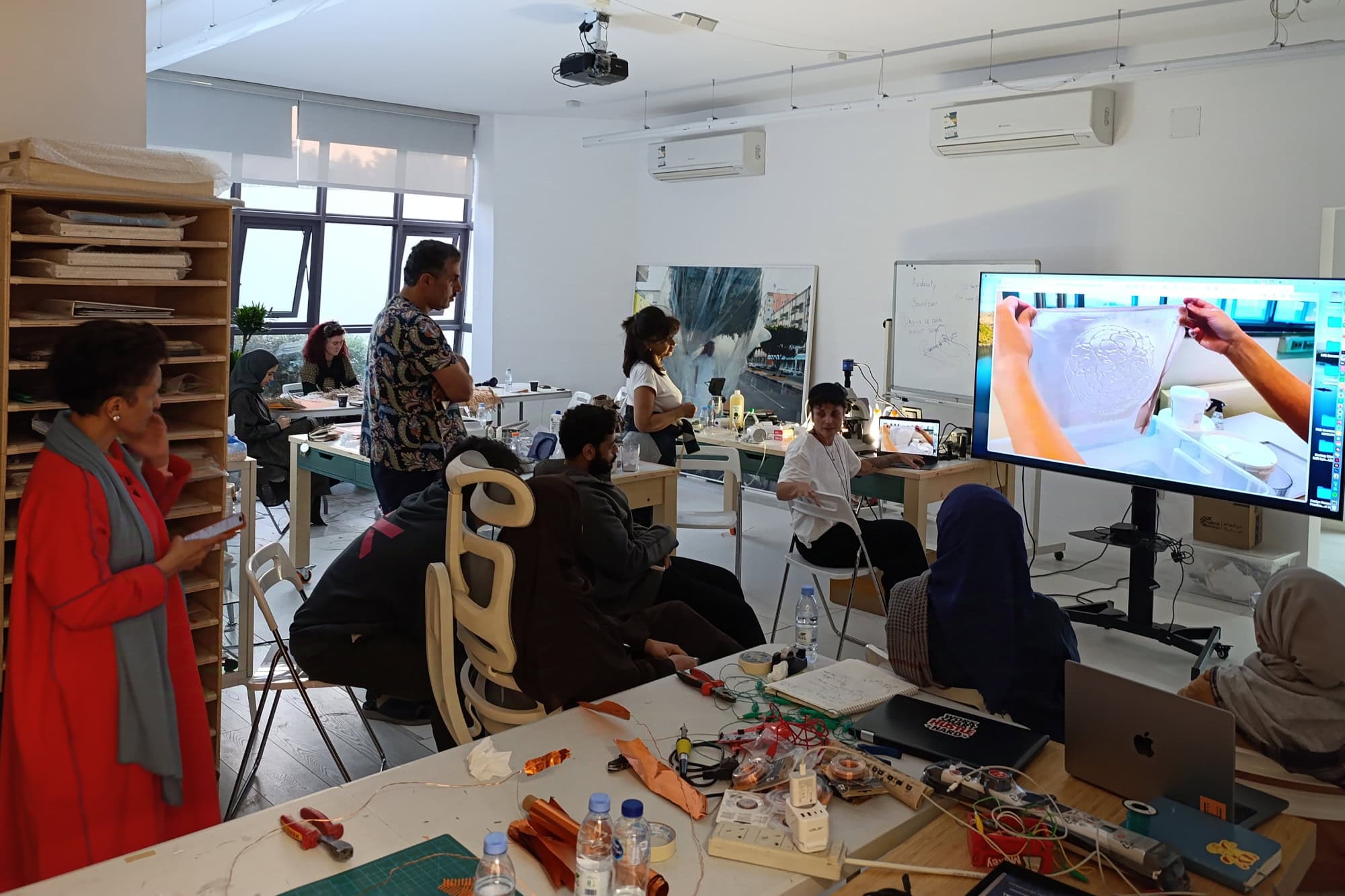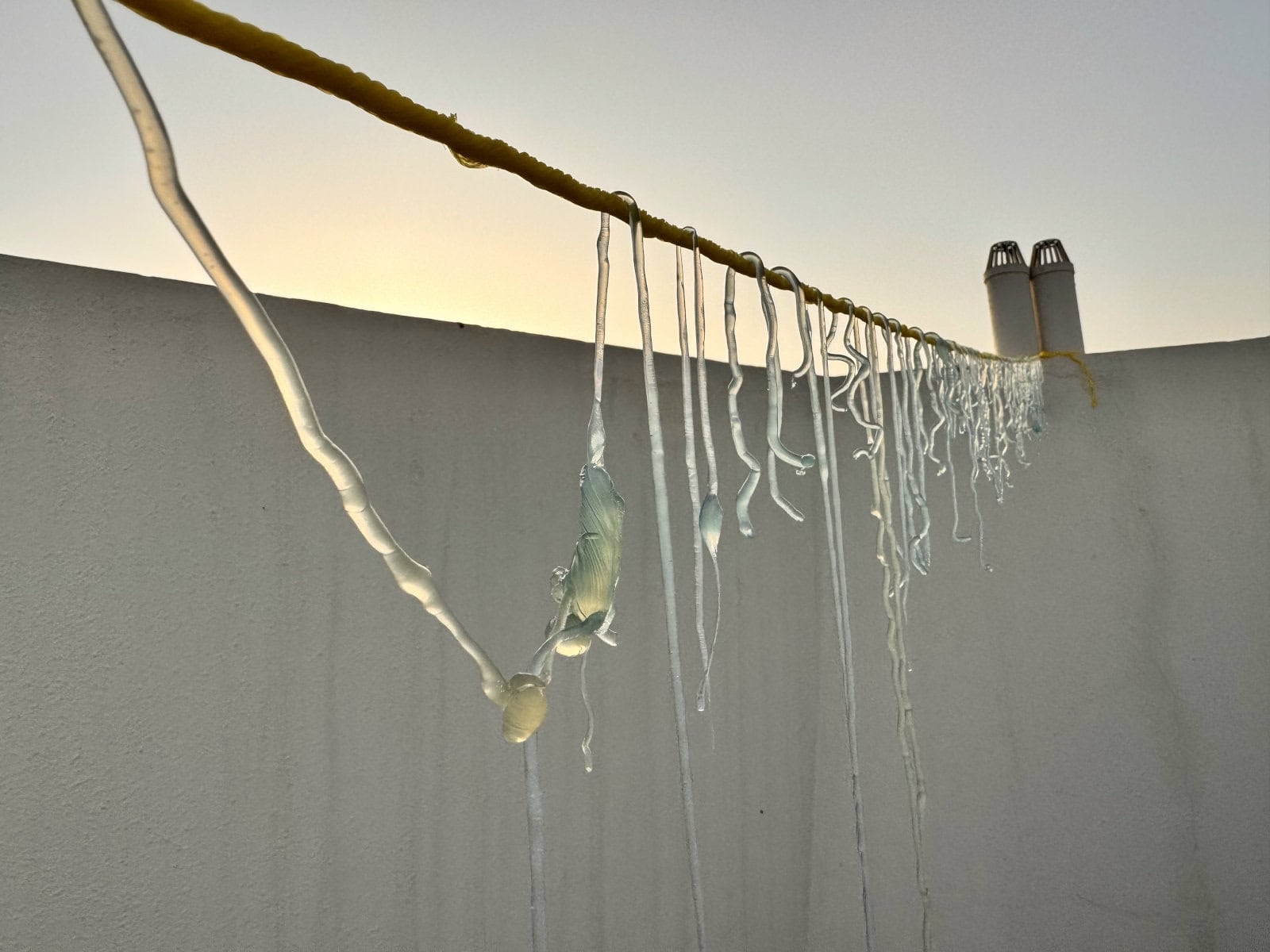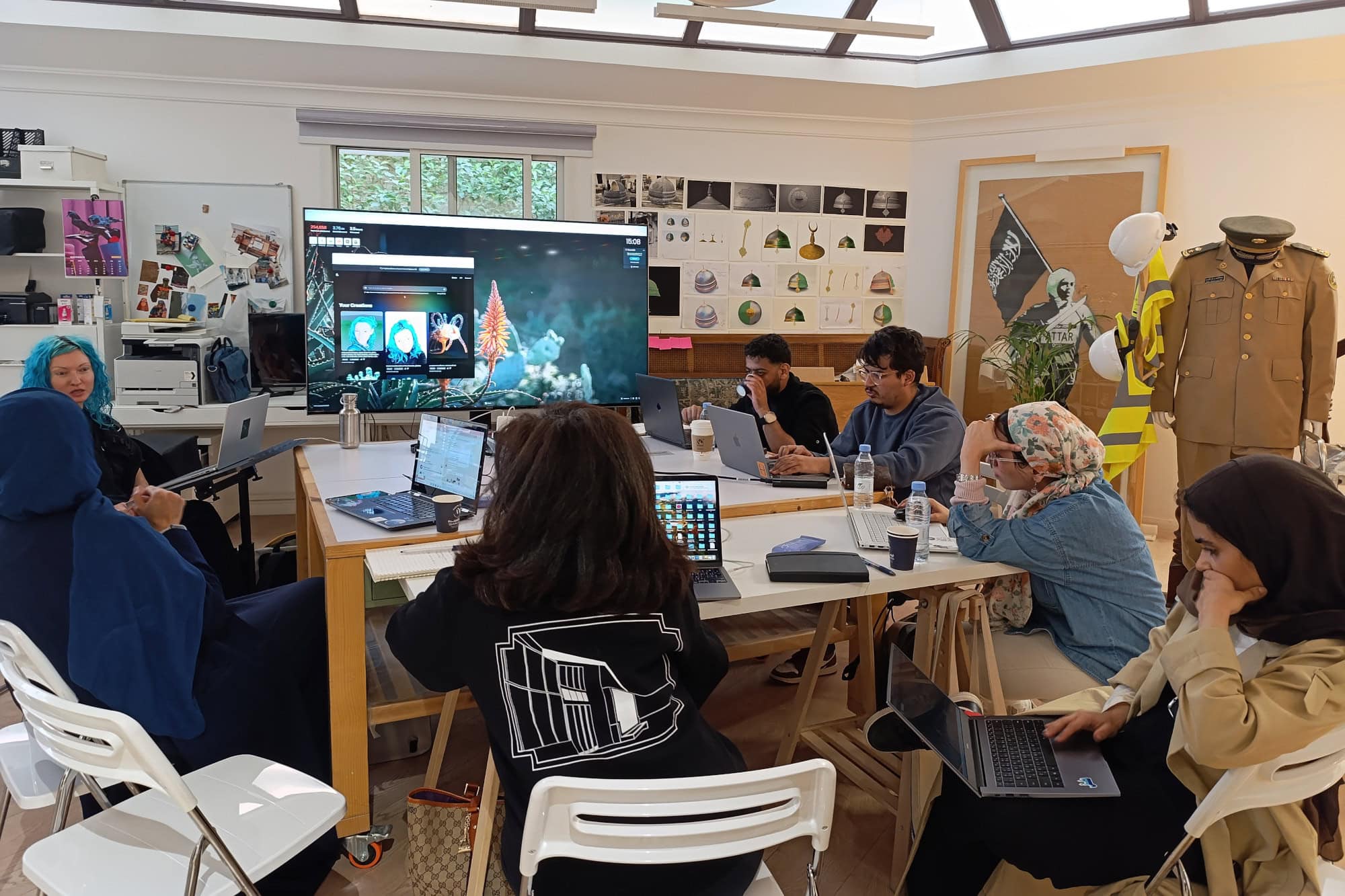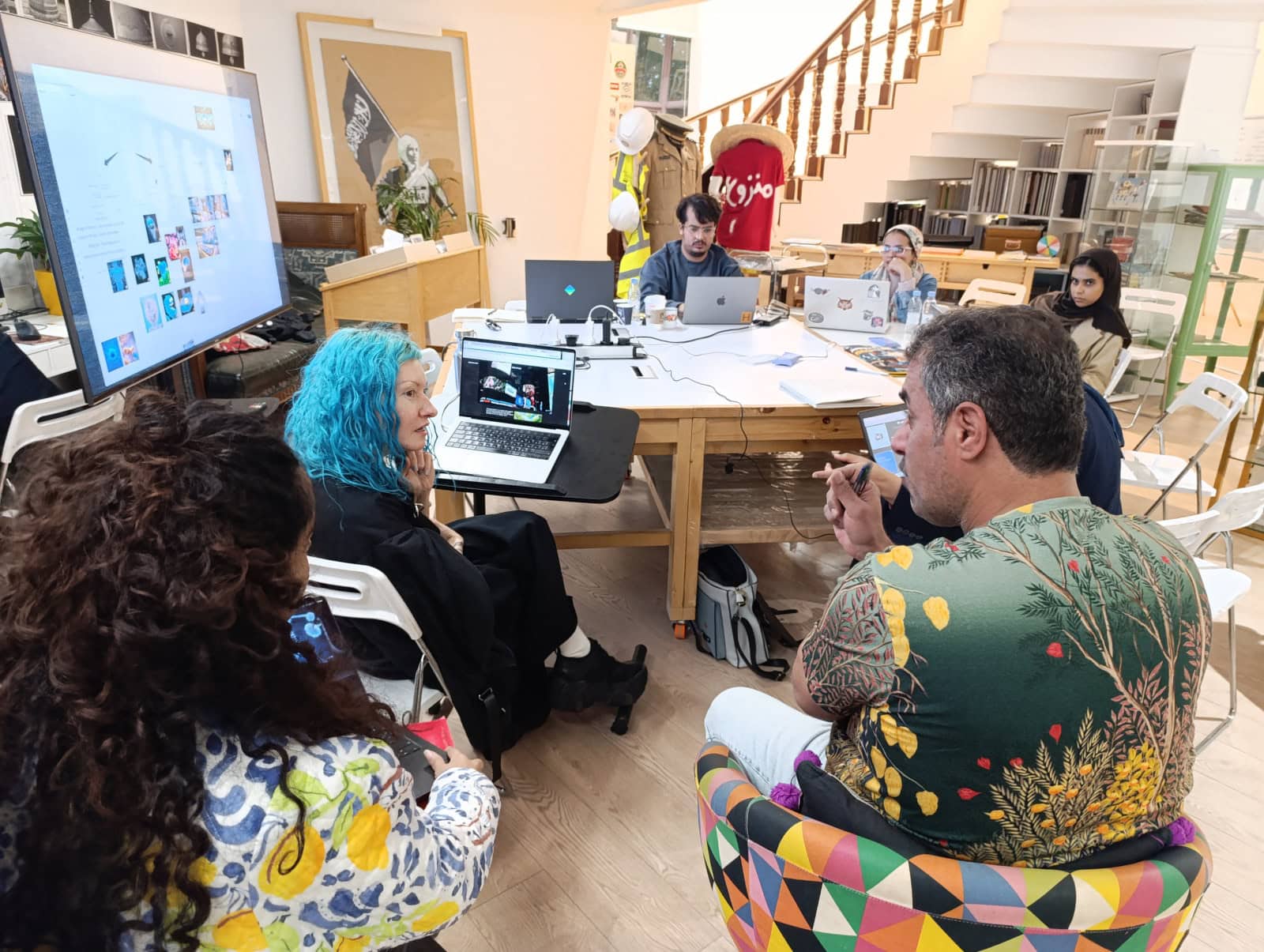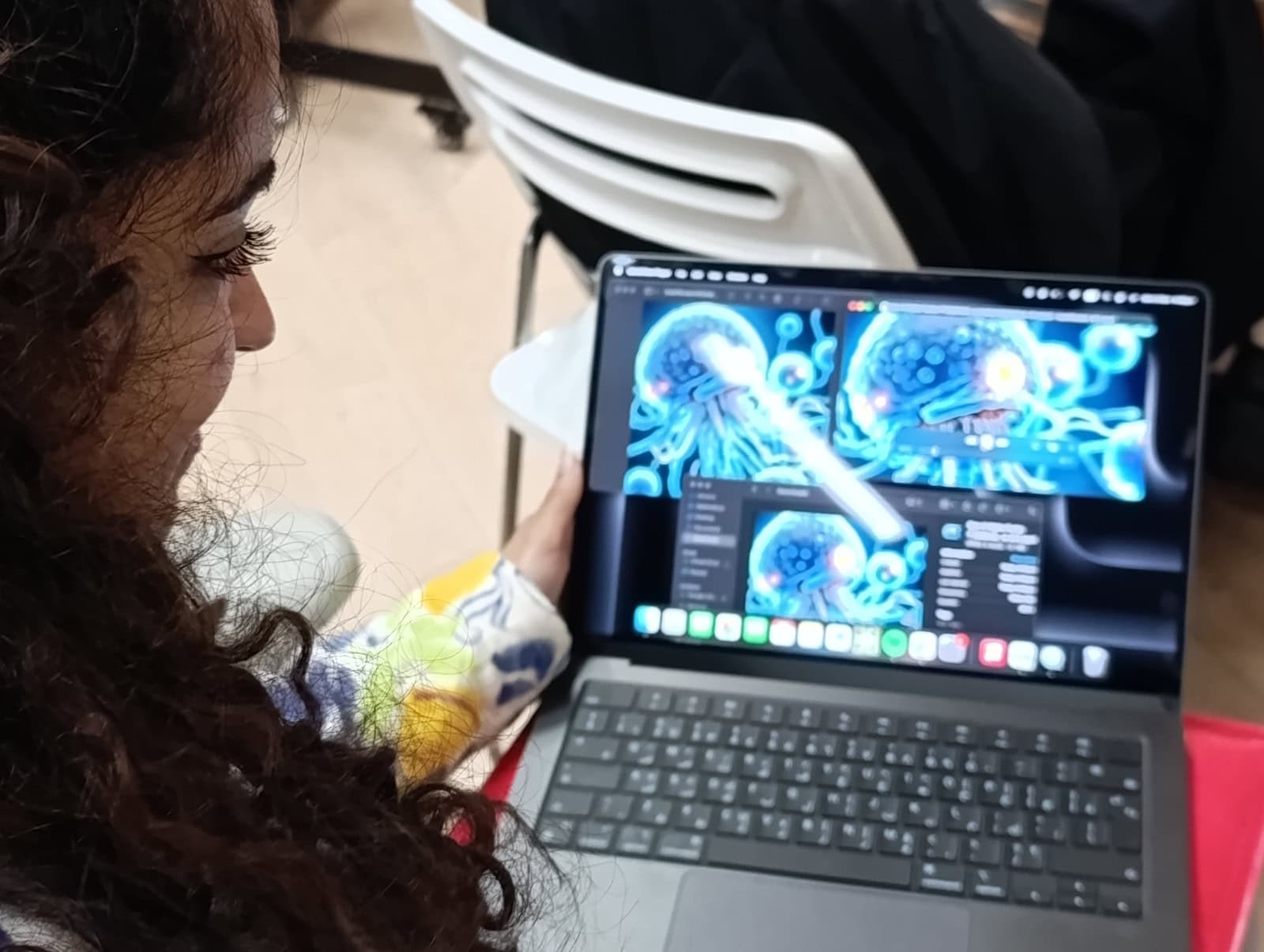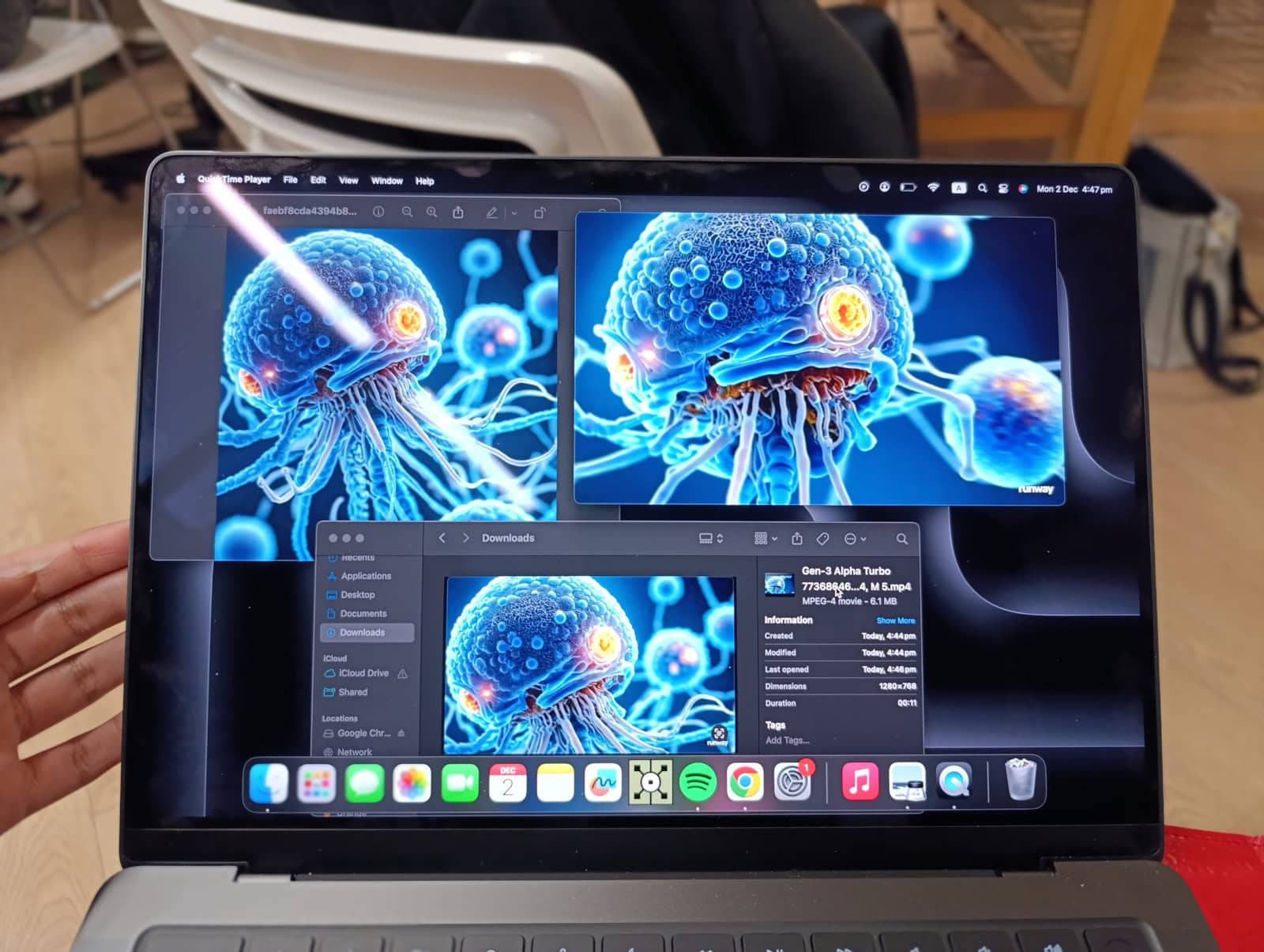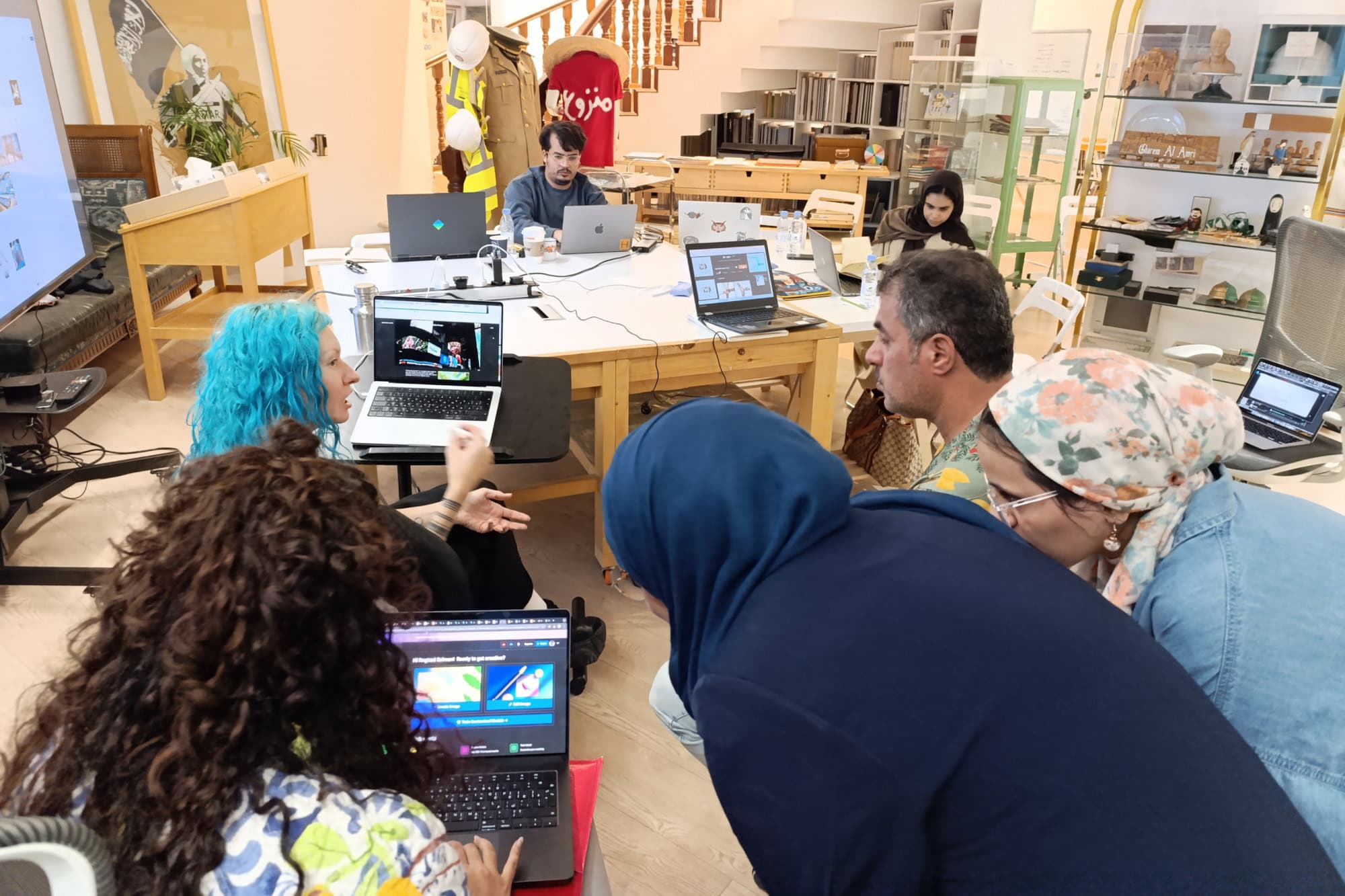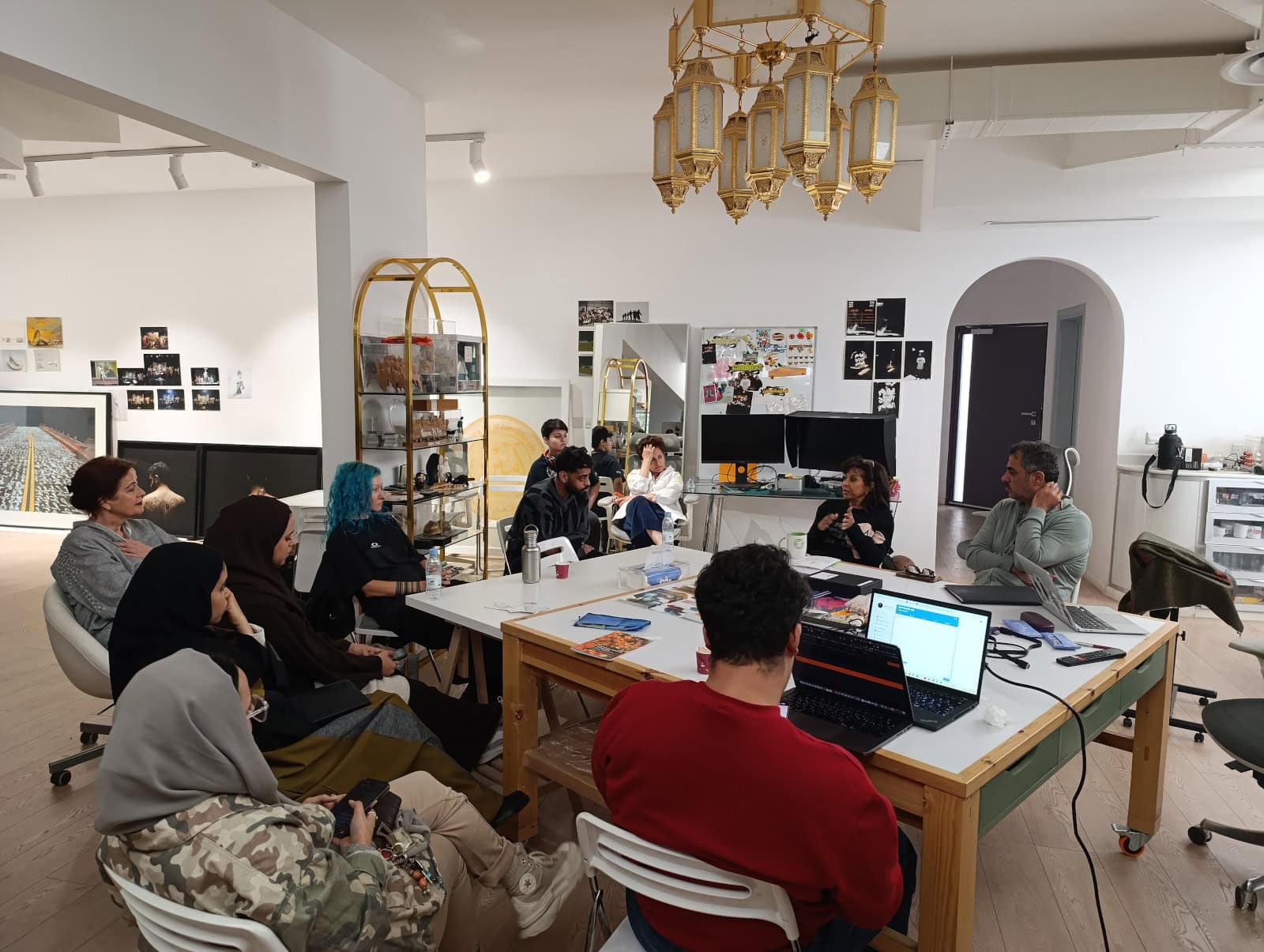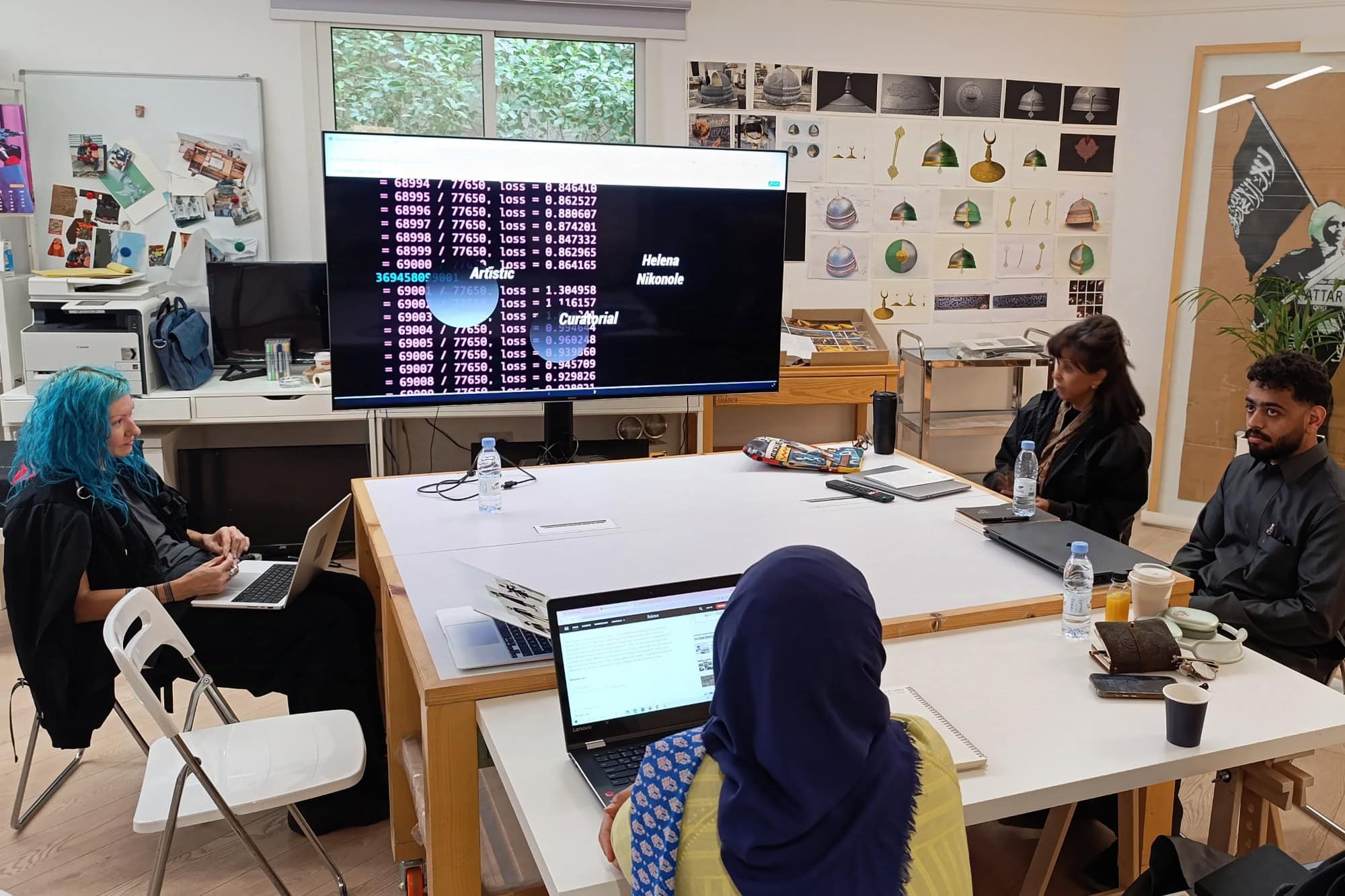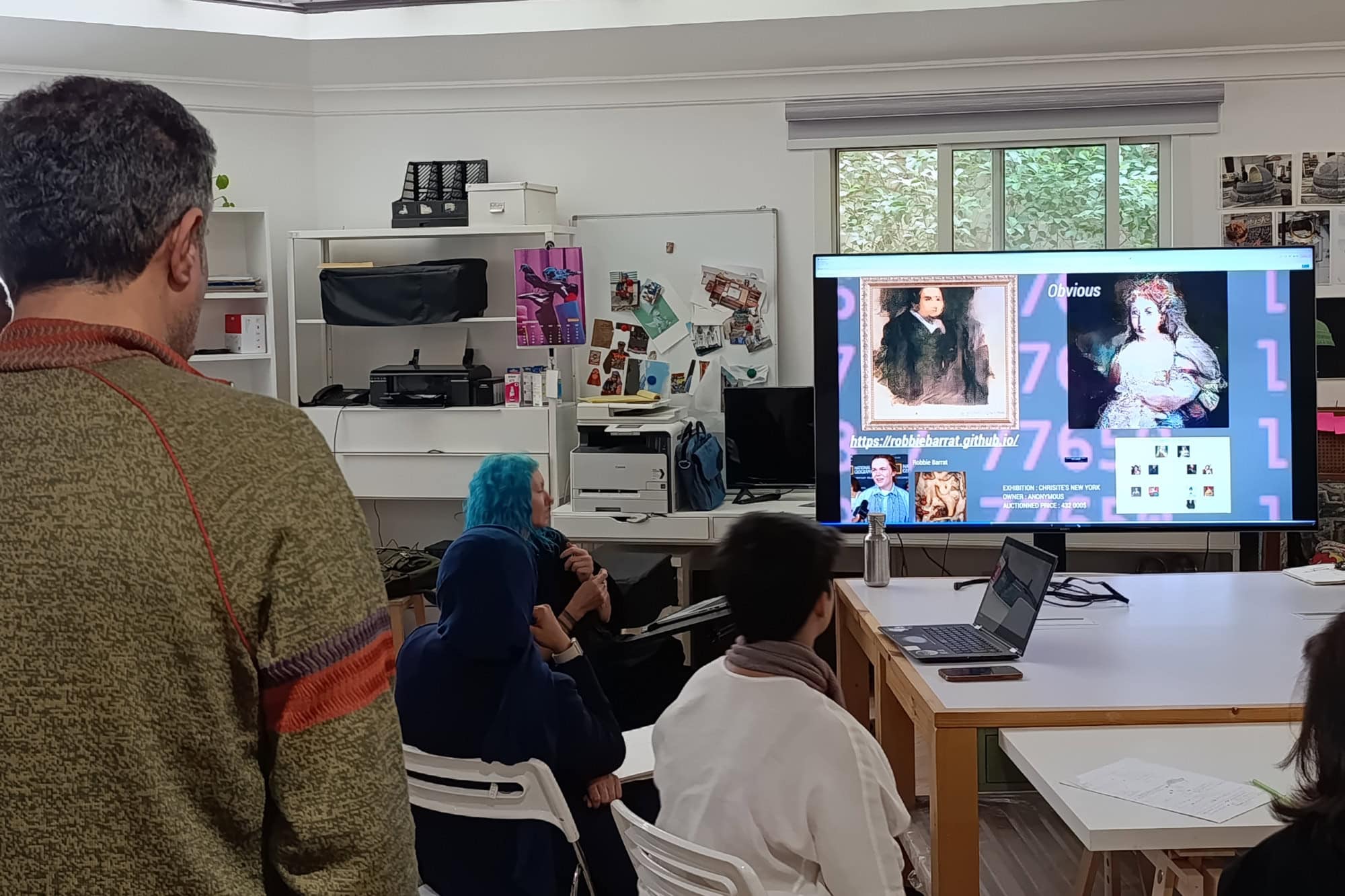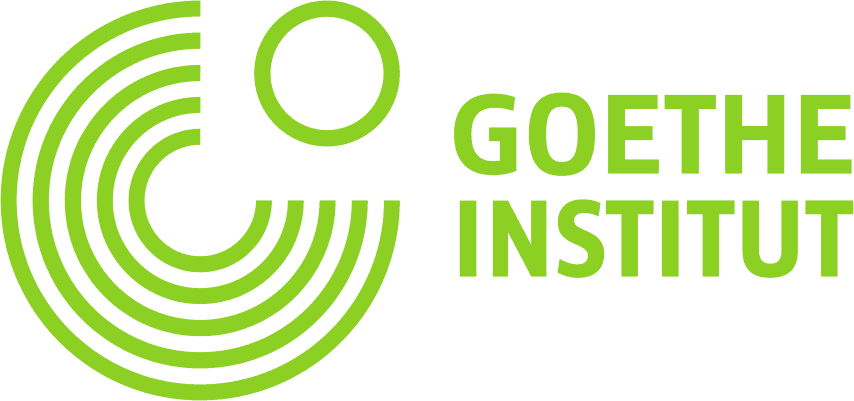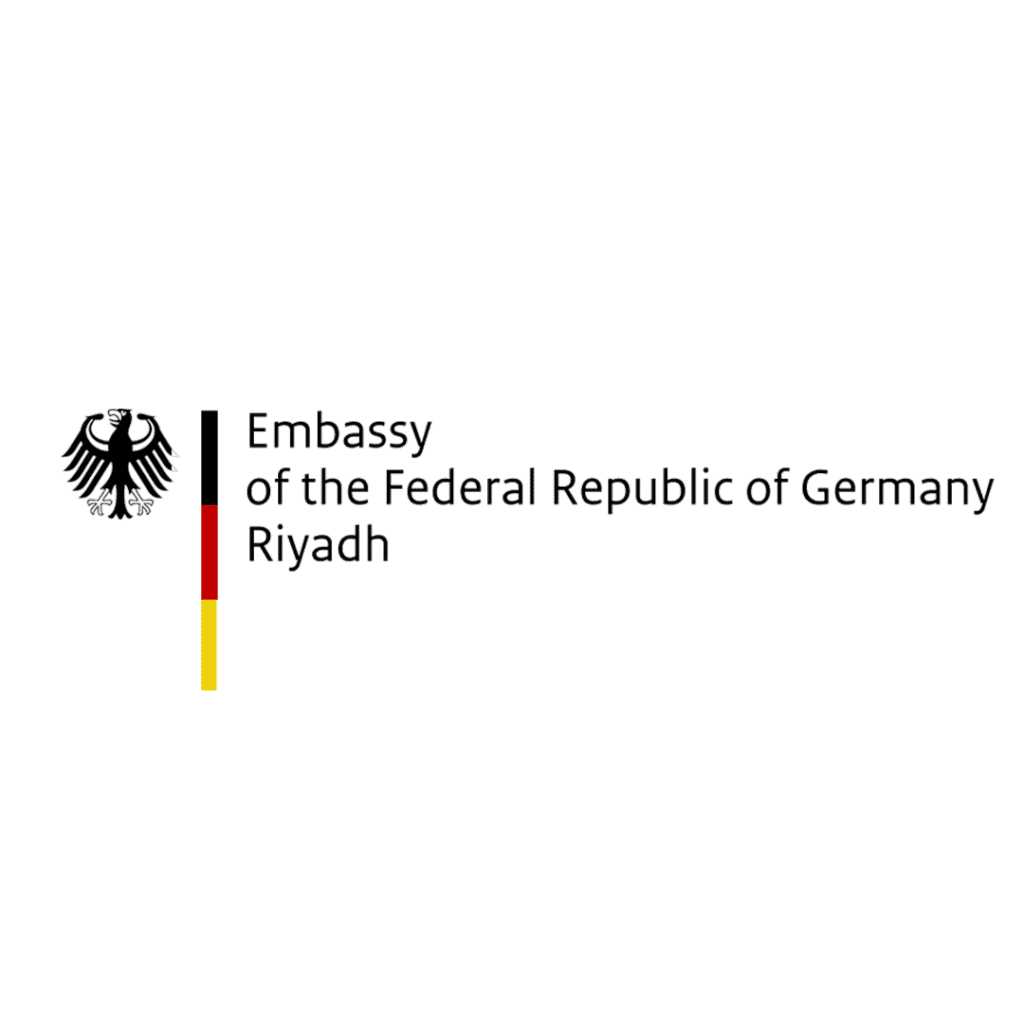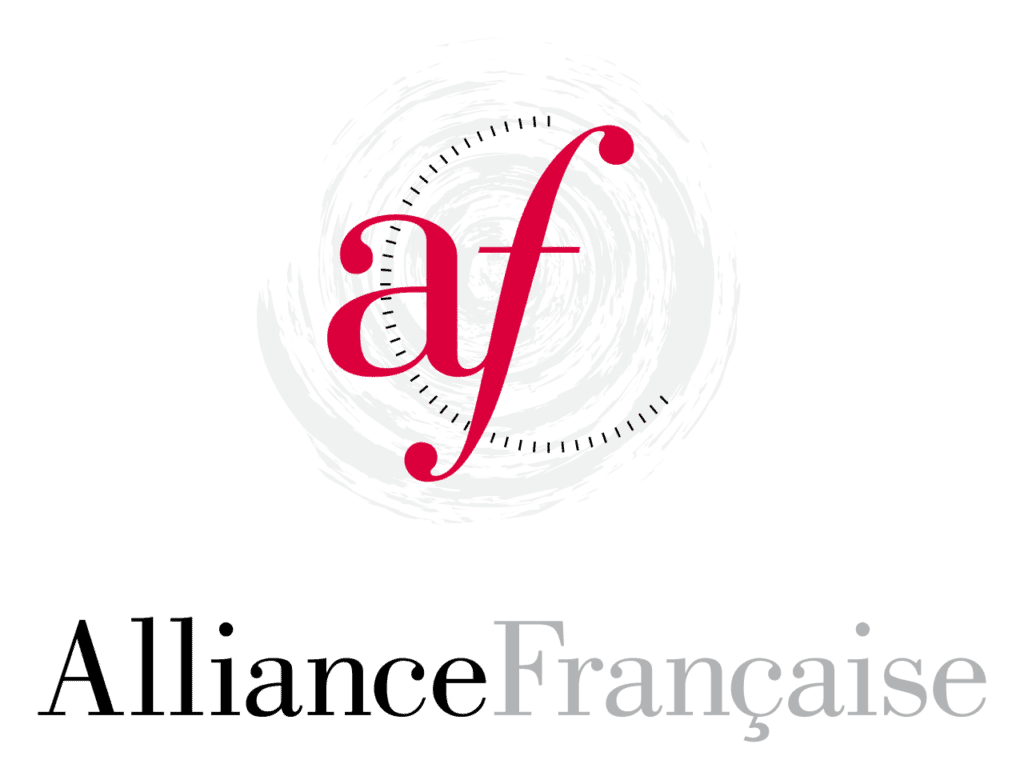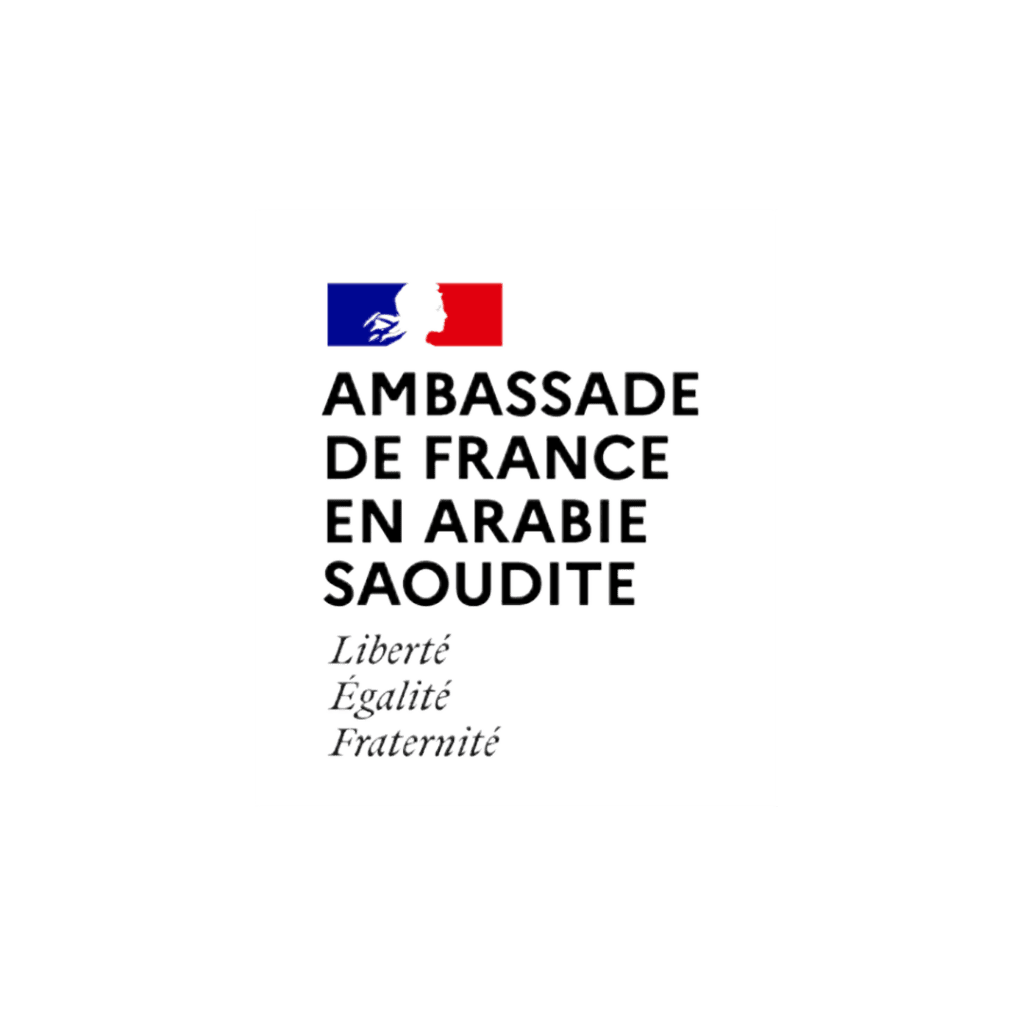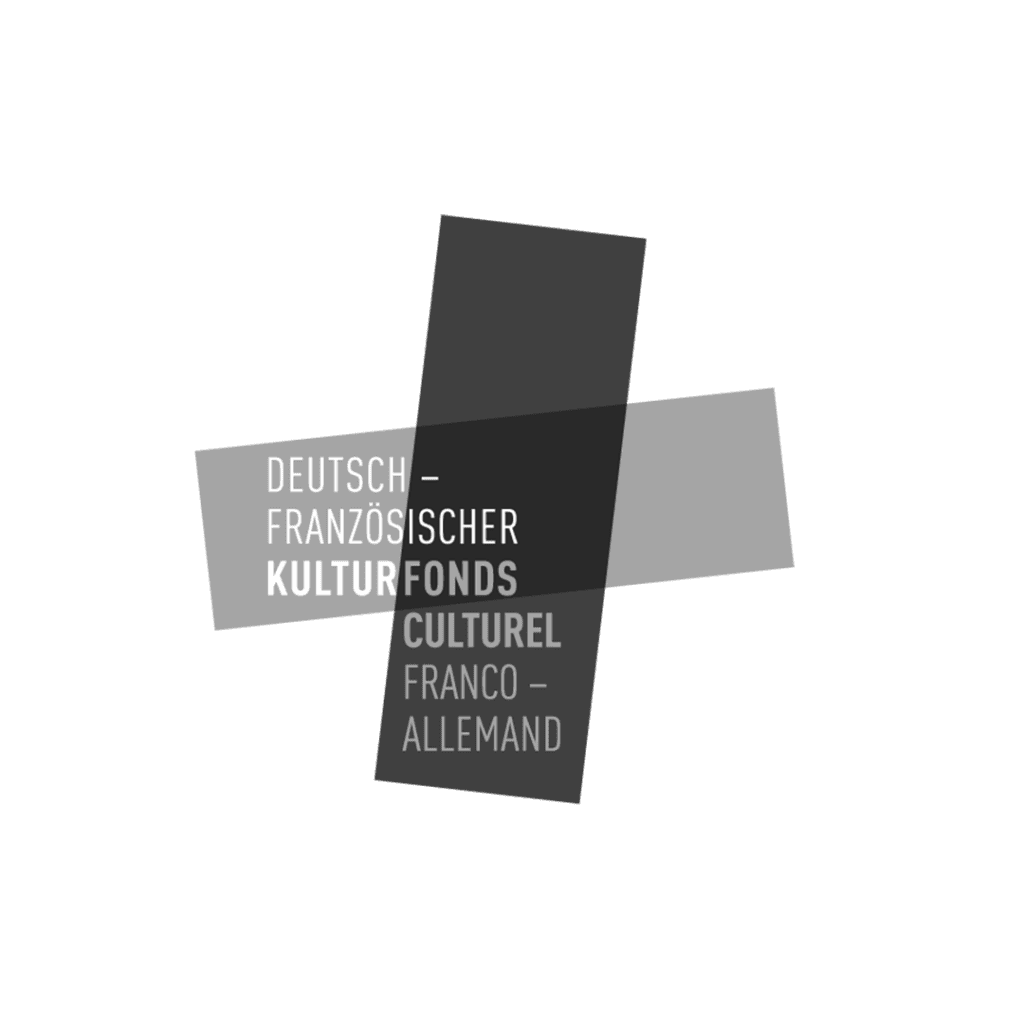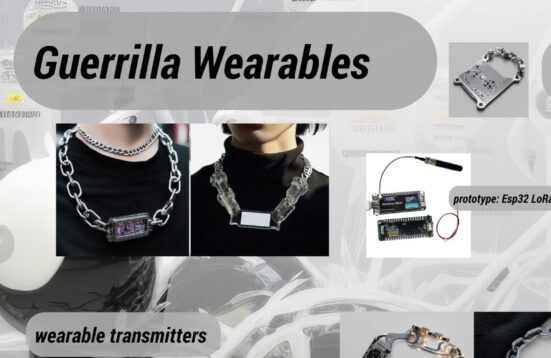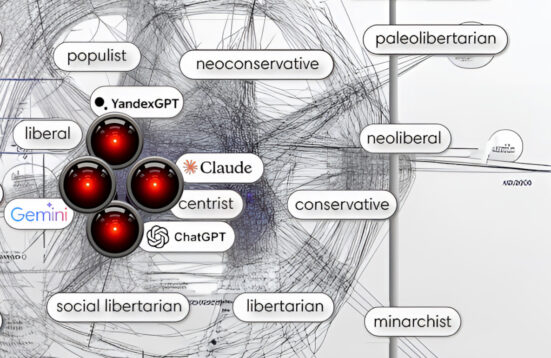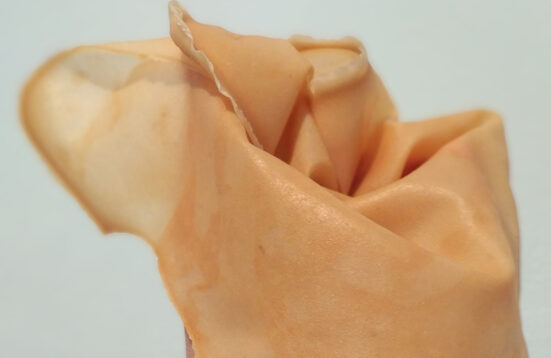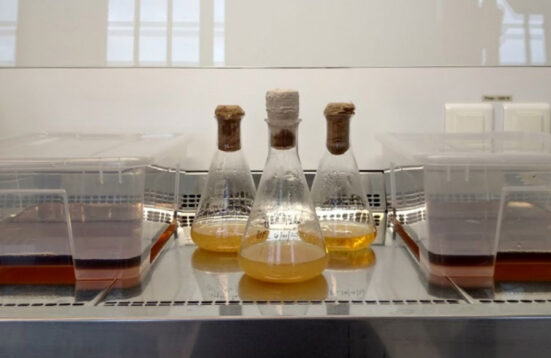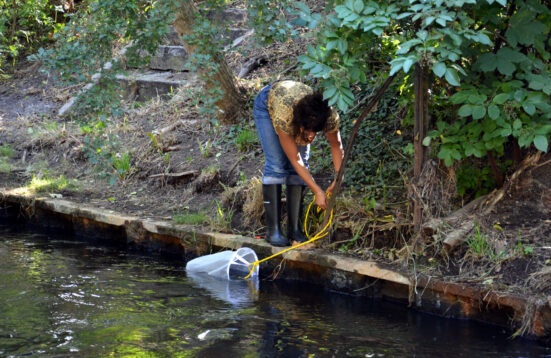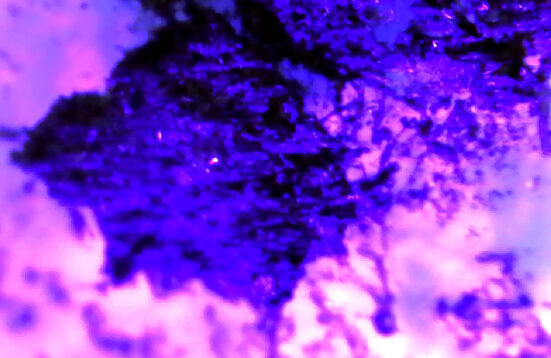OUT OF BALANCE
Bio-Art Workshop
With Fara Peluso, Helena Nikonole, Karine Bonneval, Regine Rapp, and Christian de Lutz
The international 10-day BioArt workshop OUT OF BALANCE took place in Riyadh, Saudi Arabia, from 24 November until 4 December 2024. The Goethe-Institut in Saudi-Arabien and the Alliance française d’Arabie saoudite, together with the French Embassy, had invited Art Laboratory Berlin to develop a program and organise the first BioArt Lab in Riyadh at the Gharem Studio, a perfect ground for studying BioArt in theory and practice. Five seminar units with curator and researcher Christian de Lutz and art historian and curator Regine Rapp offered a theoretical insight into BioArt, DIY Bio Labs, and art science collaborations. Three hands-on workshops shared techniques of various artistic work with biological organisms – palm trees with artist Karine Bonneval and algae with artist and designer Fara Peluso – as well as AI tools about speculative futures with artist Helena Nikonole (text and images below, video all below).
SEMINAR
BioArt. History, Methodologies, and Bio Labs. Art and Ecology. BioArt and Technoscience
With Christian de Lutz and Regine Rapp
Christian de Lutz, co-founder and co-director of Art Laboratory Berlin, has curated over 50 exhibitions with workshops, conferences, and publications, focusing on the interface of art, science and technology in the 21st century. Regine Rapp, art historian and curator, co-director of Art Laboratory Berlin, and currently guest professor for Art & Science at Art Academy Muenster, researches, teaches, curates, and publishes on Hybrid Art. In their SEMINAR sessions de Lutz and Rapp presented and discussed their theoretical BioArt research based on their work at Art Laboratory Berlin. In the first SEMINAR session at Gharem Studio, Christian de Lutz introduced a diverse group of artists, architects, and designers to the history of BioArt, with examples from five continents. Special emphasis was given to artistic approaches to work with living material. In the second SEMINAR session participants learned about methodologies and practices for collaboration between artists and scientists, with a special emphasis on successful trans-disciplinary partnerships. The third session focussed on DIY/ DIWO approaches for artists working collectively in self-made laboratories, with myriad international examples. The focus was on giving the participants the knowledge and tools to plan their own collective practice. In the fourth SEMINAR session, Regine Rapp theoretically discussed BioArt within the frameworks of the more-than-human, exploring BioArt in the context of ecology and the climate crisis. Together with the interdisciplinary workshop participants Rapp examined in the fifth and last SEMINAR session artistic approaches about biological and technological interconnections in the era of technoscience.
WORKSHOP
Our Palms. Weaving Crafts and Technology
With Karine Bonneval
Ecosophy artist, based in central France, Karine Bonneval’s transdisciplinary practice explores alternative ecologies for breathing, moving, and listening with the plant world. Her workshop Our Palms. Weaving Crafts and Technology was an invitation for the participants to go into the field to meet date palm trees – walking among them, looking at them, listening to the sounds of their palms and trunks, sap and soil with bioacoustics tools. From this harvest they created a carpet, using palm and other plant fibres, in order to weave the plant material and artificial items such as electronic wires, connected to Arduino. The result from this collective work was a sounded piece that can be activated by touching copper palms: from the palm of the hand to the palm tree. The audience can touch the carpet and listen to the sounds collected from the field trip. The date palm, a symbolic tree in Saudi Arabia, is the subject of an ongoing research project which Bonneval is developing with a variety of actors (farmer-gardeners, artists, preservation associations, and scientists). For the artist it essential important to provoke encounters between human bodies and those of plants, and their ways of being in the world. Thinking about ecology today requires for humans to reverse their anthropocentric perspectives.
WORKSHOP
Algature: DIY Bioreactors and Bioplastic Sculpting
With Fara Peluso
Bio-artist and researcher, based in Berlin and affiliated with the Karlsruhe University of Art and Design, Fara Peluso’s speculative research connects humans with living organisms and biological processes, especially with algae. Theworkshop Algature presented the great potential we can have today through the collaboration between DIY biology and speculative design practices. Thanks to the interactive format, participants were involved in an immersive experience with algae’s ecology and DIY photo-bioreactor design prototyping. The workshop raised questions such as how can proximity to living organisms leads to economic, political, and artistic contributions. Algature proves how the sharing of different knowledge, and the discovery of unknown organisms is a central aspect: Combined with thinking by doing, it contributes to shaping critical minds. In this way the participants actively learn about design, art, biology, and DIY methodologies, they can intervene in aspects of fundamental importance linked with our contemporary and future existence.
In the workshop Sculpting with Bioplastic Peluso presented her ongoing research about bioplastic based on algae materials, questioning how it could be possible to employ this new generation of materials inside the field of art and design in the context of a circular economy. The workshop was conceived to show knowledge and share tools of transdisciplinary practice that combines design with science through DIY biology and a speculative approach. Participants were engaged with experiments and theoretical observation, where the topic of bioplastic and circular economy were explored.
WORKSHOP
Speculative Species Evolution
With Helena Nikonole
New media artist and curator, currently working between Berlin and Istanbul, Helena Nikonole’s work spans hybrid art, bio-semiotics, and AI. She explores utopian post-human futures and critically examines today’s technological dystopias. In her 4-day workshop Speculative Species Evolution Helena combined DIY-bio with AI tools to imagine future species adapted to the Anthropocene. Participants used DIY microscopes and AI software to create speculative evolutionary pathways. Helena’s workshop was engaged by a dynamic group of participants, ranging from artists and architects to computer scientists and a doctor. The workshop introduced the concept of speculative evolution, exploring how life on Earth might evolve under future environmental and technological pressures. A particular focus on human evolution emerged, driven by the participants’ strong interest in imagining how humans might adapt and transform. The program included a dive into AI theory, aesthetics, and the complexities of AI ownership and data ethics, discussing the multifaceted contributions behind large language models and text-to-image systems. Participants engaged in hands-on practices, learning prompt engineering basics and using AI to visualize speculative evolutionary pathways that were developed collectively. Additionally, they assembled DIY Foldscope microscopes to capture images of local plants and species, integrating these into their AI experiments to envision new evolutionary futures.
*****
Art Laboratory Berlin wants to express big gratitude to Abdulnasser Gharem and Halla bint Khalid from Gharem Studio as well as the artists and all workshop participants for their limitless openness, kindness and curiosity which let the workshop become a fantastic collective endeavour. Art Laboratory Berlin also wants to thank the Goethe-Institut in Saudi-Arabien as well as the Alliance française d’Arabie saoudite, together with the French Embassy for the wonderful support and collaboration as well as the funding of the production.

